HONDURAS: Health System
2018
In Honduras, healthcare expenditure represents 8.5% of the GDP, translating to about $400 per person annually. This figure is significantly lower than the average for the Americas, which directly impacts the quality and accessibility of healthcare services. The country grapples with widespread poverty, with over 66% of its population living below the poverty line and one in five individuals enduring extreme poverty. This economic hardship severely limits both physical and financial access to necessary health services, disproportionately affecting those with low and middle incomes.
The public healthcare infrastructure in Honduras is notably deficient. Many health centers and hospitals are outdated, with some facilities dating back to the early 20th century. These centers are in dire need of substantial investments to upgrade their infrastructure and equipment. Without these improvements, the ability to provide optimal and safe medical services remains compromised. The outdated facilities contribute to the low quality of care, which can pose significant risks to patient safety and overall public health.
Improving healthcare in Honduras requires a multifaceted approach. The government and international organizations must prioritize investments in healthcare infrastructure and equipment. Additionally, programs aimed at reducing poverty and increasing education about health and wellness can empower communities to seek and advocate for better healthcare services. By addressing these systemic issues, Honduras can work towards a more equitable healthcare system that provides quality care for all its citizens, regardless of their income level.
Project realized in 2018 in collaboration with Direct Relief .
https://www.directrelief.org/2019/02/families-honduras-ruth-paz-foundation-hospital/
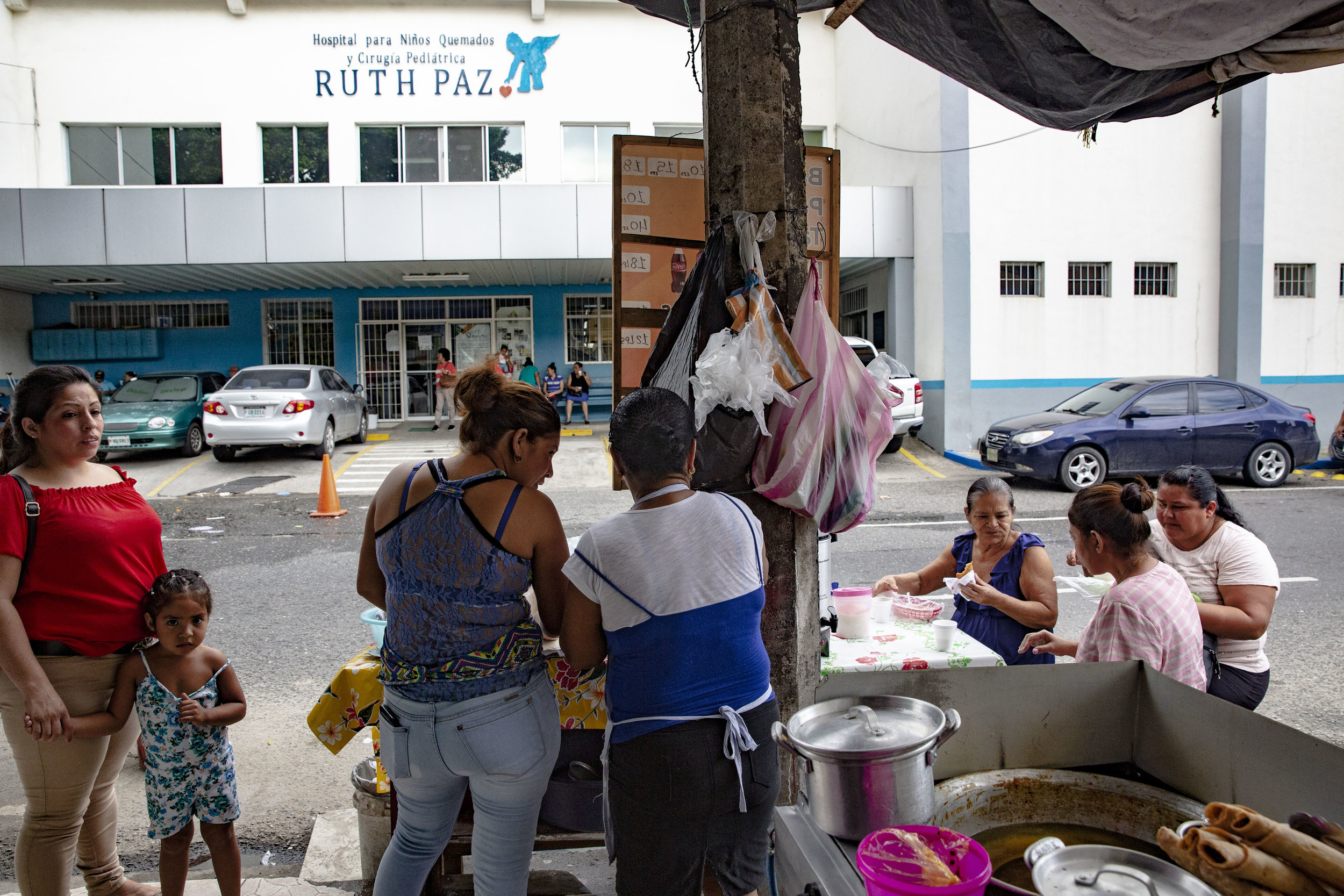
Women preparing and selling tradional honduran food for breakfast outside the Ruth Paz hospital in San Pedro Sula, Honduras.
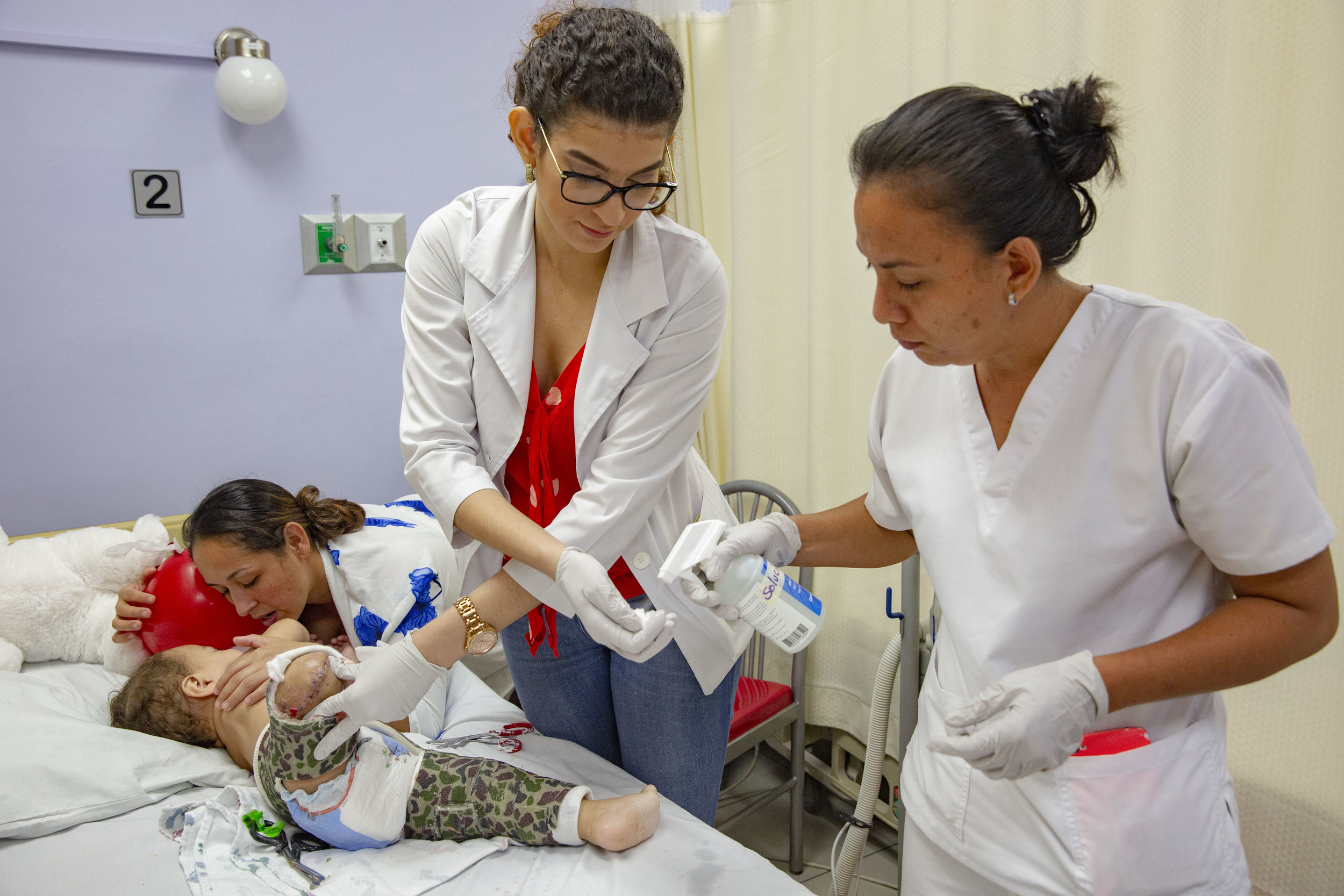
Fredy Armando Tinoco Molina, 1 year and half. He was in a car accident in which his granfather died. He was taken to a public hospital, but it was not treated properly and the injury got infected. When his parents took him to the Ruth Paz hospital he was so critical that surgeons had to amputate his right feet.
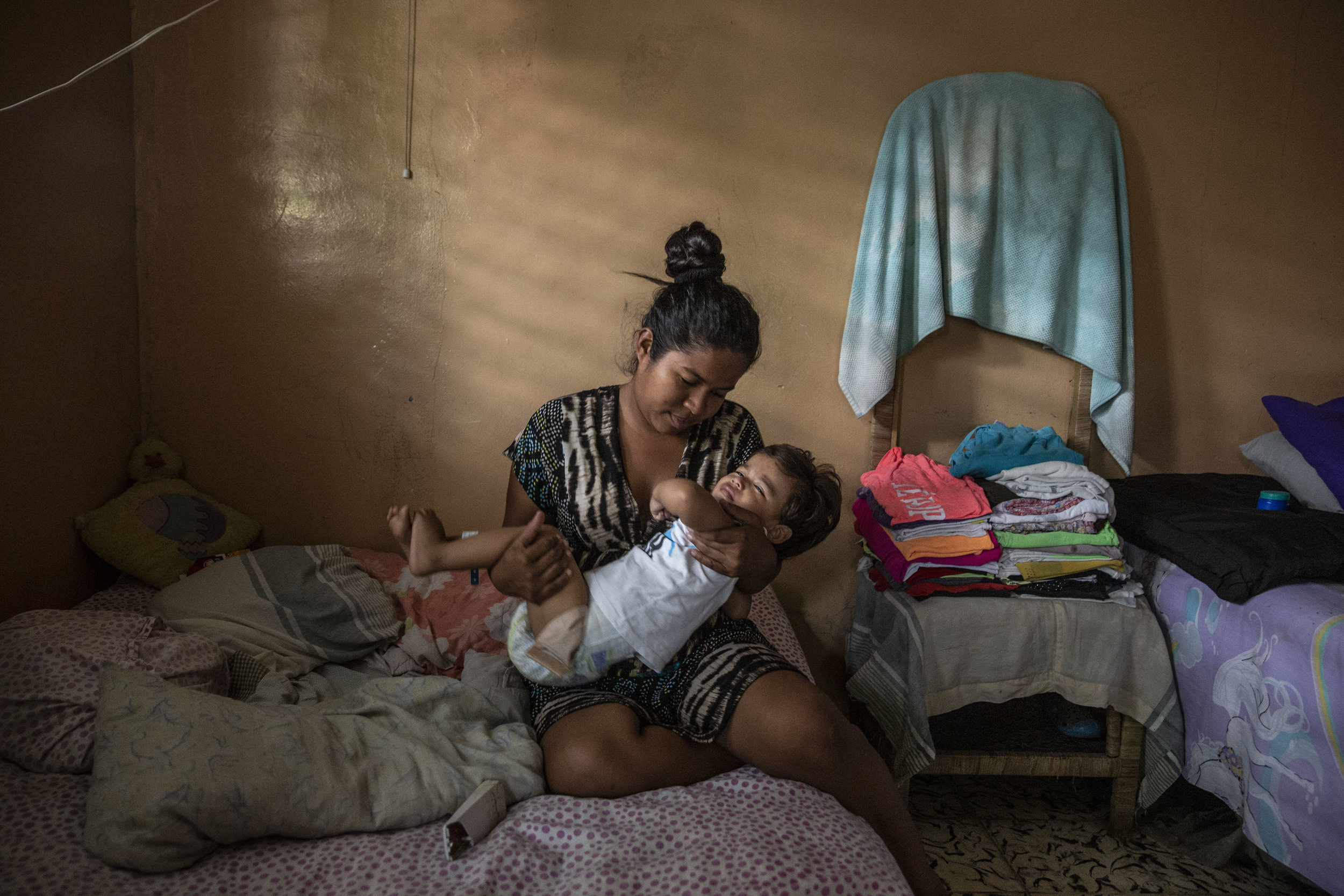
Claudia in her home holds his one year old child, Ricardo Lopez who just returned home from a nine hour long surgery at the Ruth Paz hospital in San Pedro Sula,, conducted by Dr.Craniotti, chief surgeon and specialist in anorectal disfunctions.
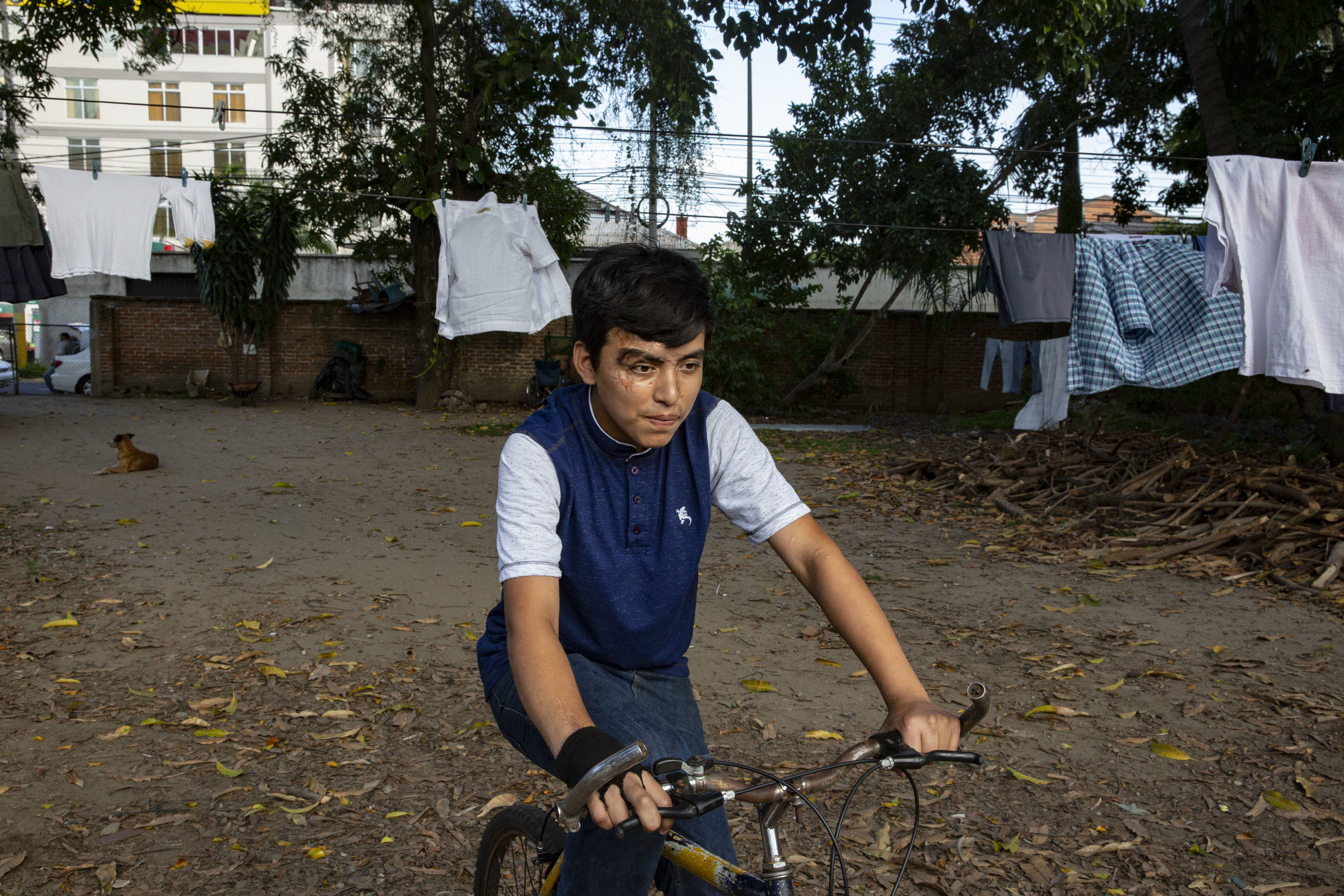
Christian Velasquez, he had several surgical operations after an car accident in 2012. Here in its bike in the courtyard of his house in San Pedro Sula, Honduras. He recevied extensive help from the Ruth Paz fundation.
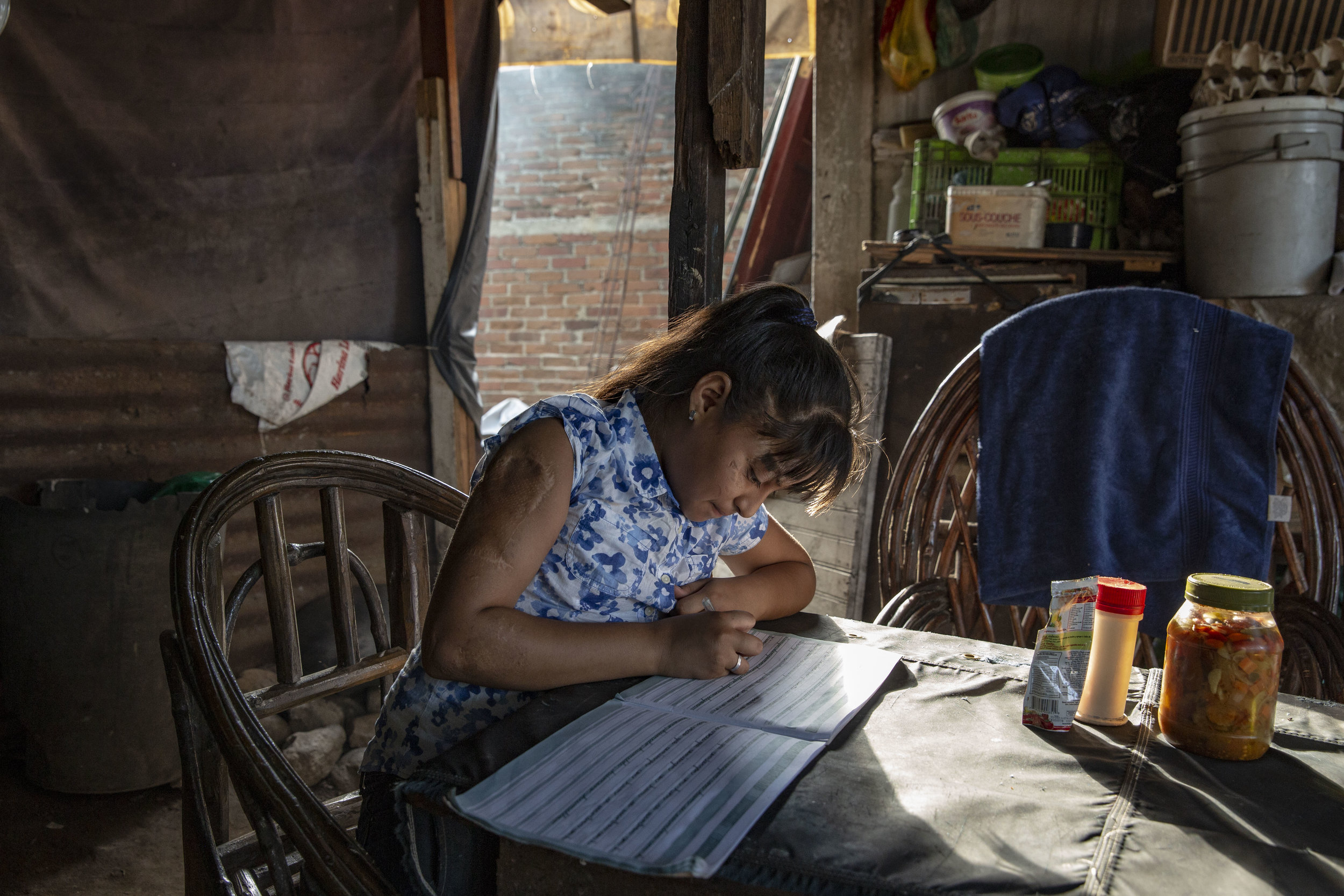
Alexandra Velasquez, she had several surgical operations after an car accident in 2012. Here doing homework in her house in San Pedro Sula, Honduras. He recevied extensive help from the Ruth Paz fundation.
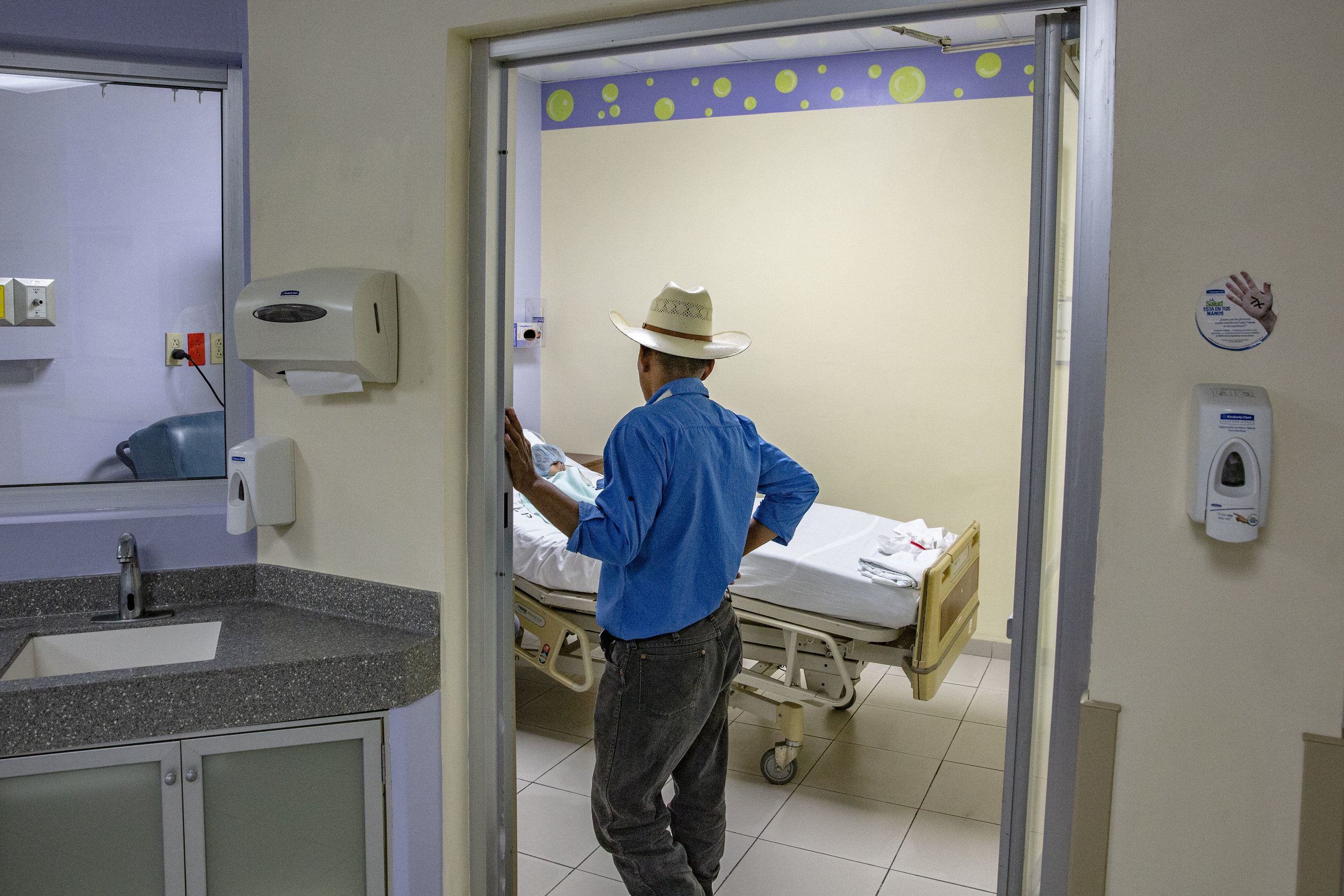
Late at night a father watches her little duaghter who was operated at the heart during the day by a brigade of foreign surgeons at the Ruth Paz hospital in San Pedro Sula, Honduras.
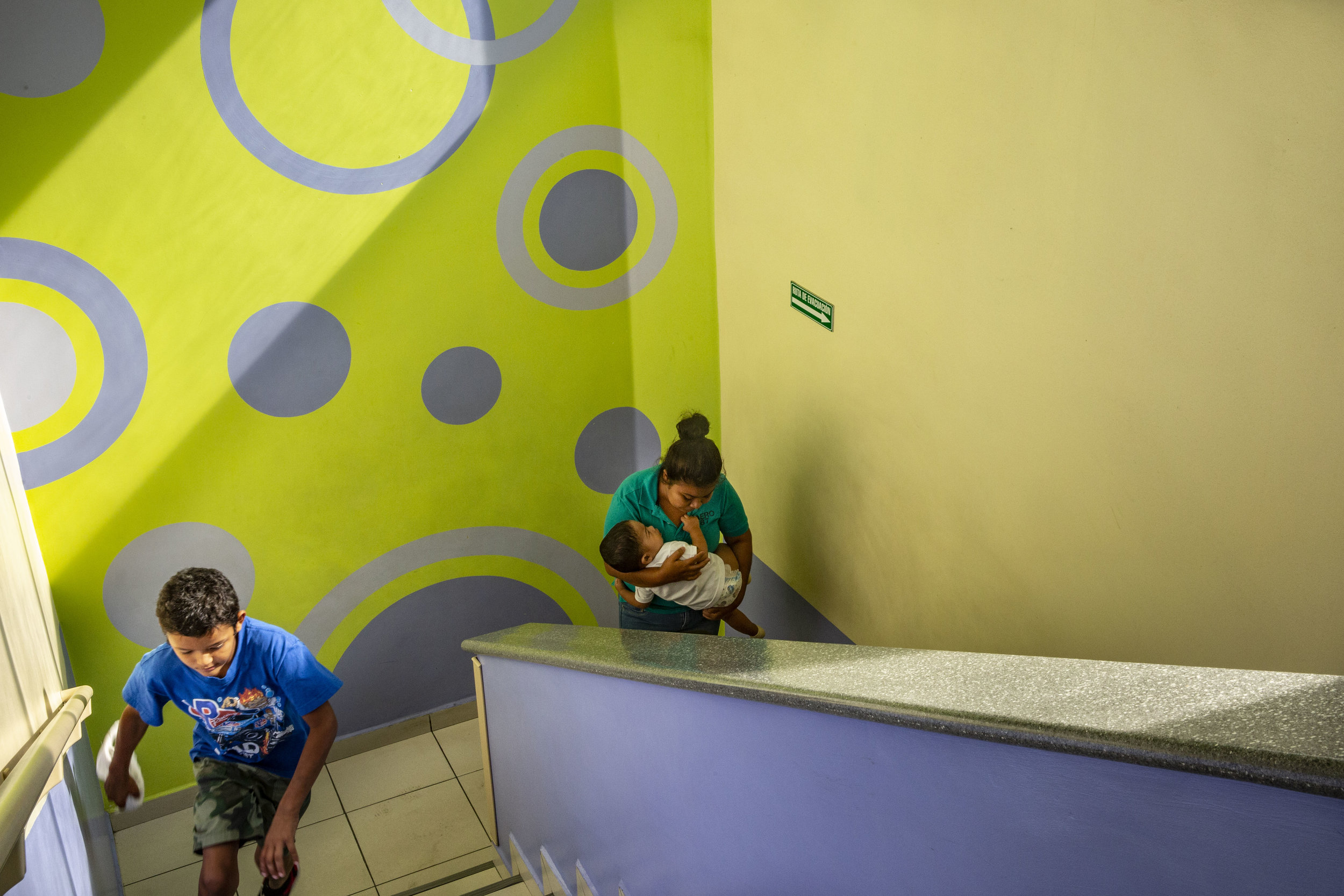
People inside the Ruth Paz hospital in San Pedro Sula.
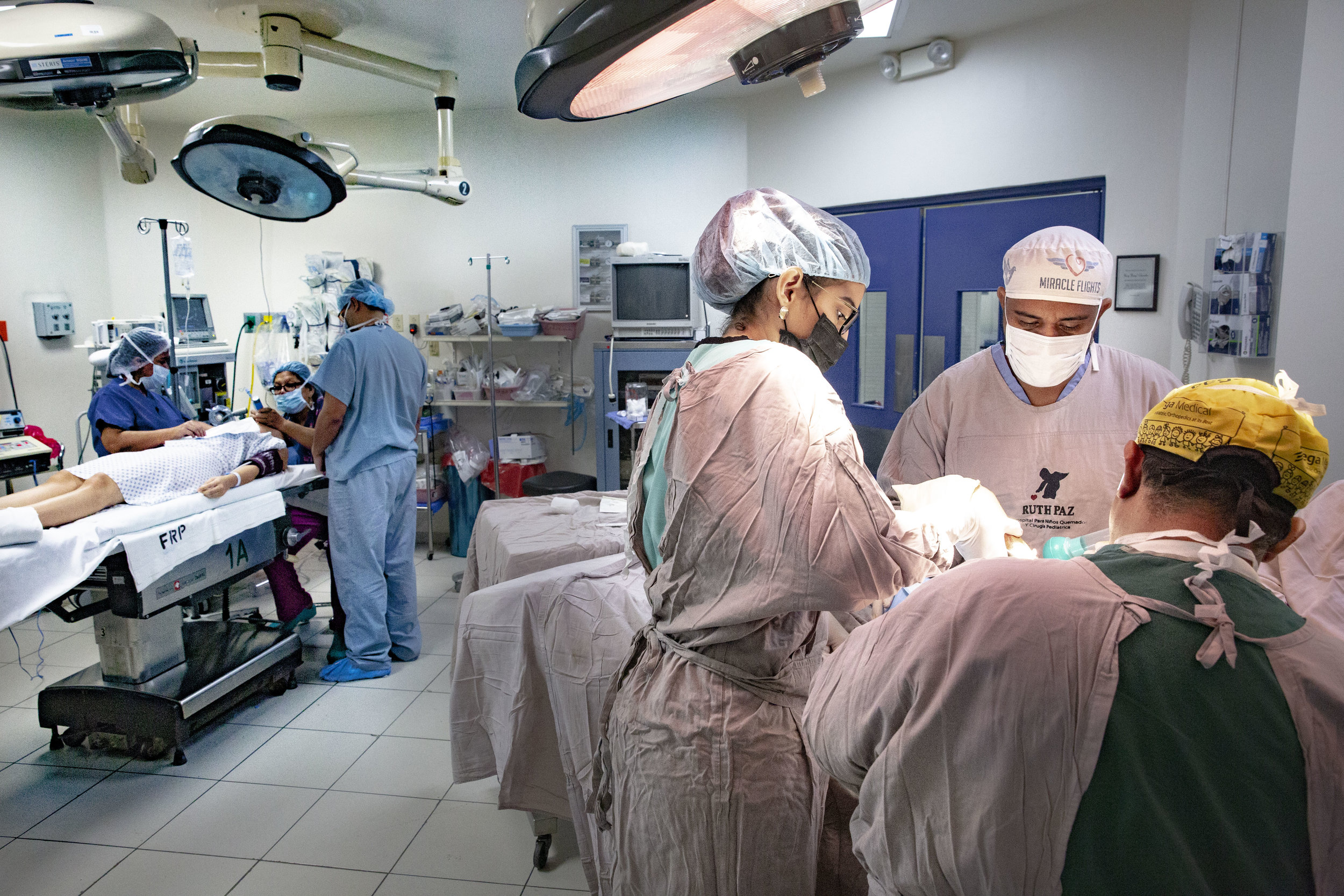
Inside a surgery room during an operation on children at the Ruth Paz hospital in San Pedro Sula, Honduras.
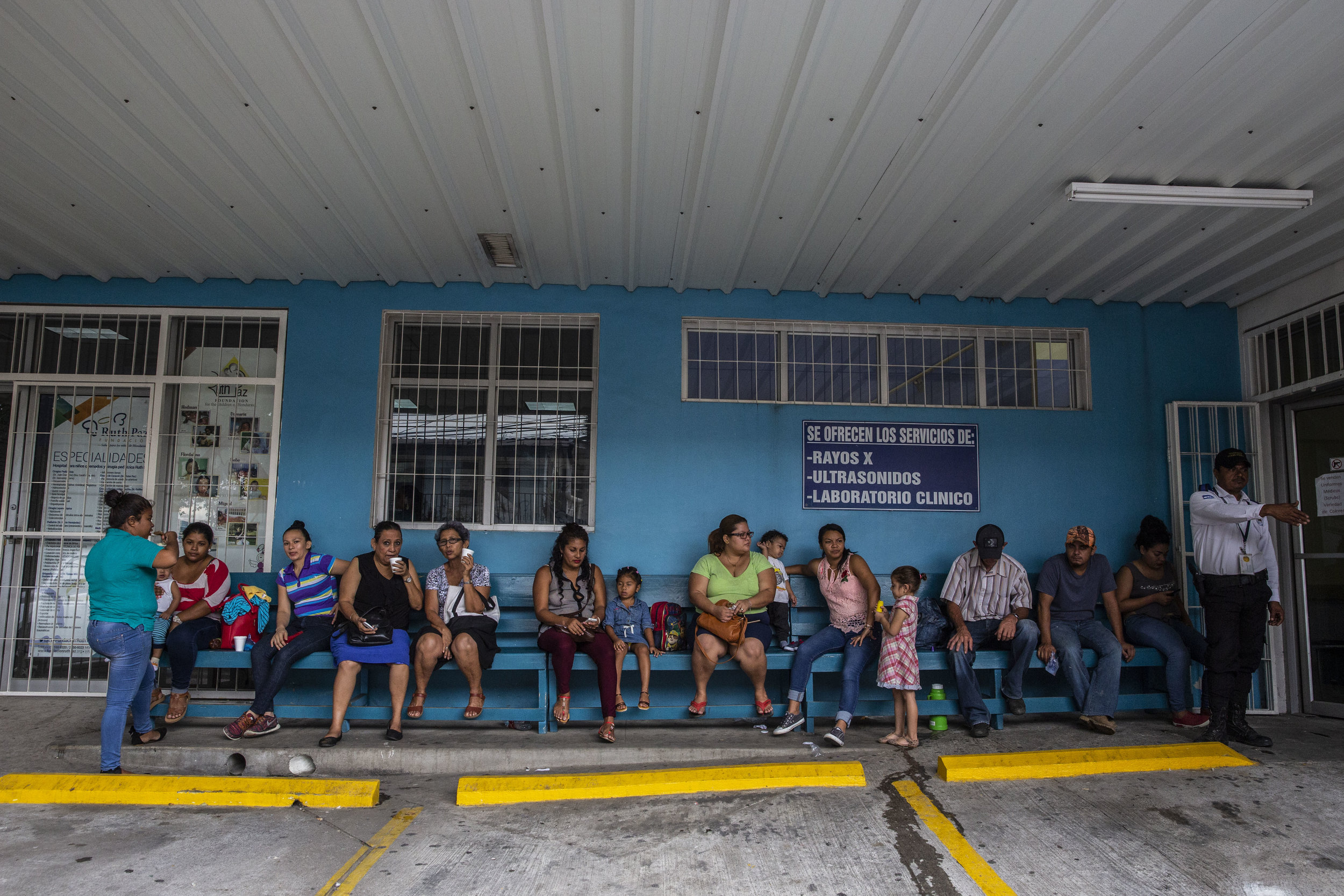
Early morning queue of people waiting outside the Ruth Paz hospital in San Pedro Sula, Honduras.
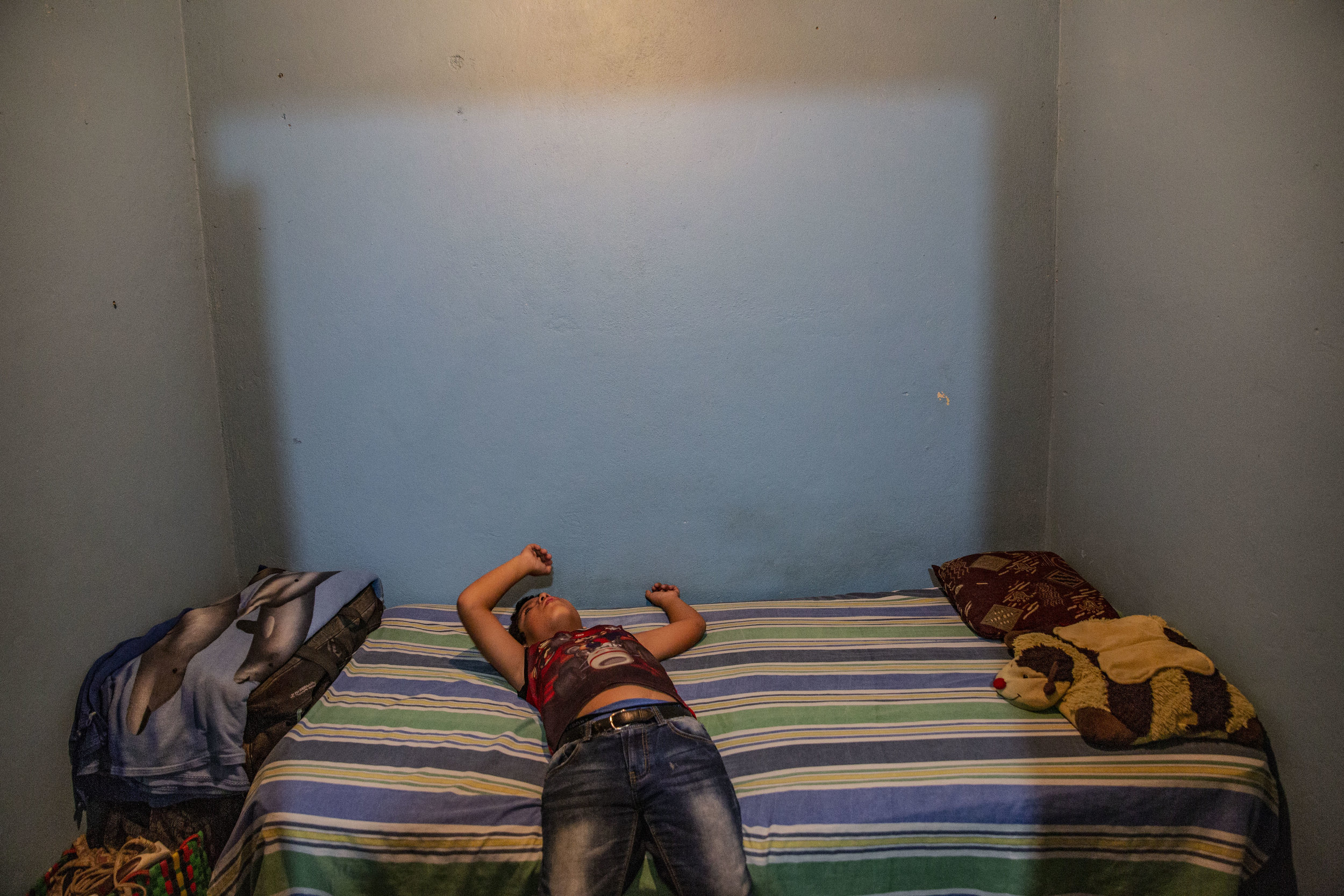
Jose Danilo Ramos is 10 and was born with anorectal malformation. He had multiple operations at the Ruth Paz hospital, here in his bed in his home where he lives with his family in San Pedro Sula, Honduras.
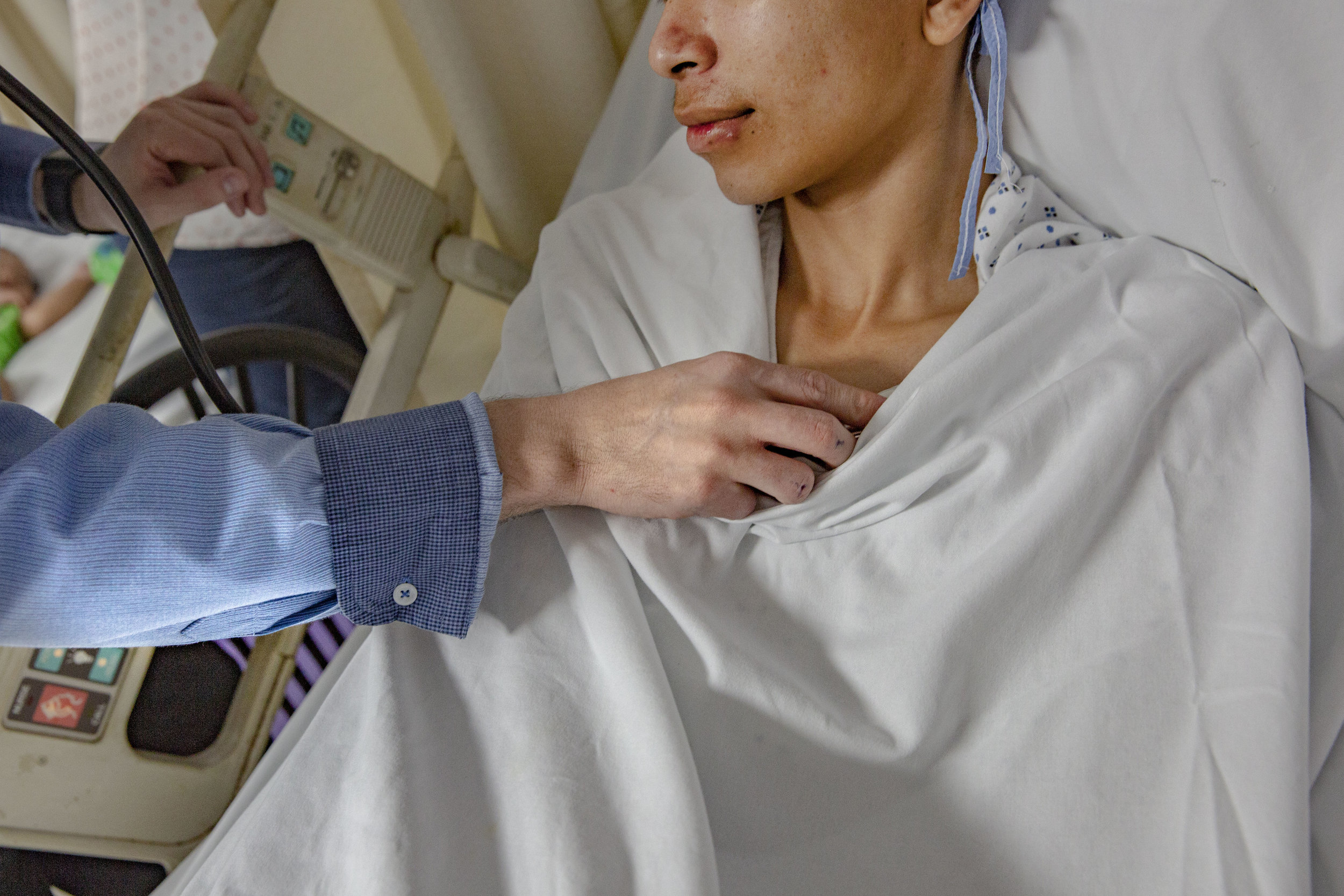
Franklin Lopez, 19, lies in a bed at the Ruth Paz hospital in San Pedro Sula, Honduras. He broke his femur when he was on a motorbike with his friend. “We were just playing, it was an accident” he says, visibly in pain. After the accident he spent twenty-one days at the public hospital without being treated for his fracture, then his mother took him to the Ruth Paz hospital an he was operated three days after his arrival.
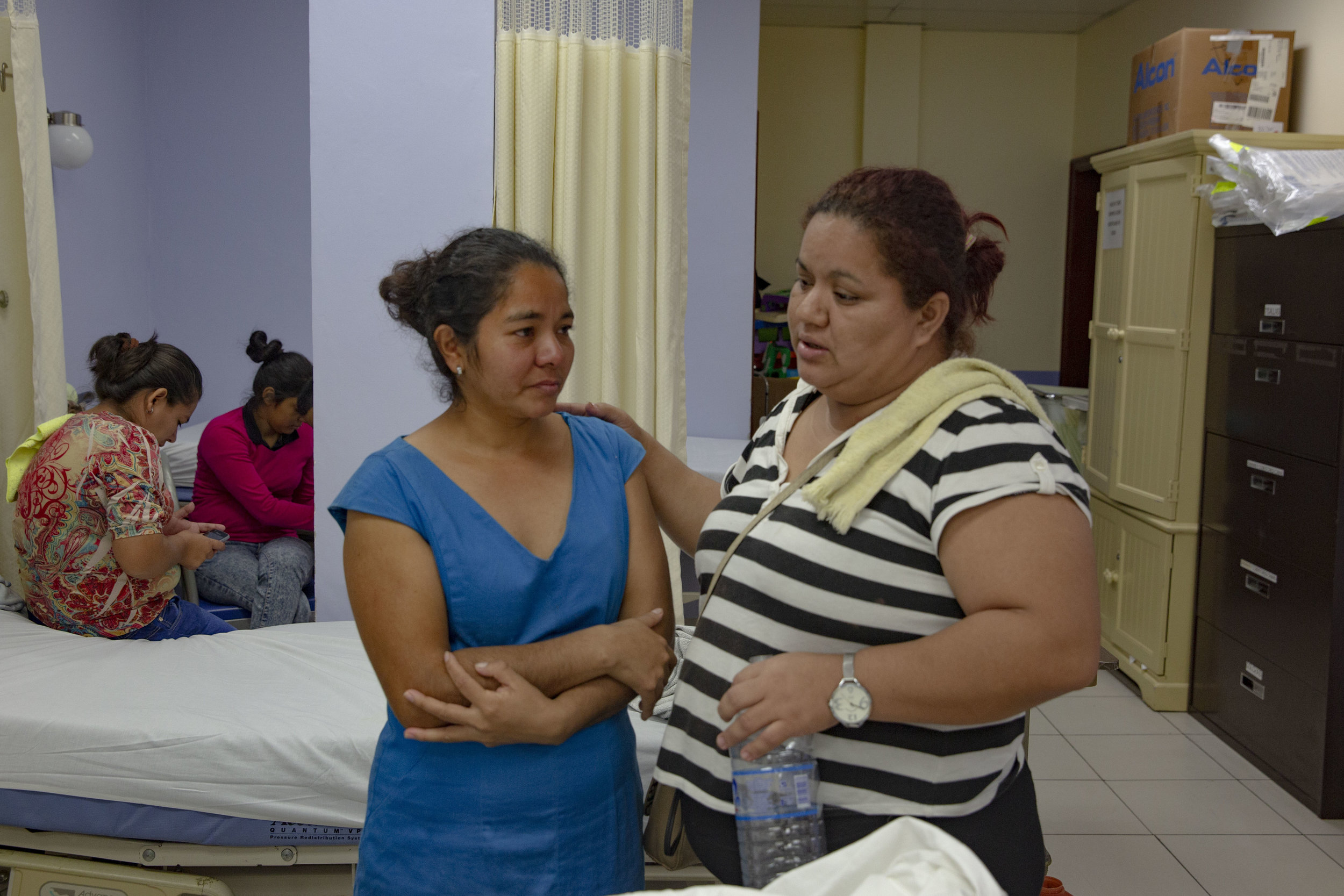
The mother of Franklin Misael Vasquez Lopez, 17, here at his bedside at the Ruth Paz hospital in San Pedro Sula, Honduras. Franklin broke his femur when he was on a motorbike with his friend. “I brought him to the public hospital, they just gave him a lot of painkillers and that’s it, they didn’t really treated him for 21 days. When his skin started to become yellowish and his leg extremely swollen then I brought him here at the Ruth Paz hospital”.
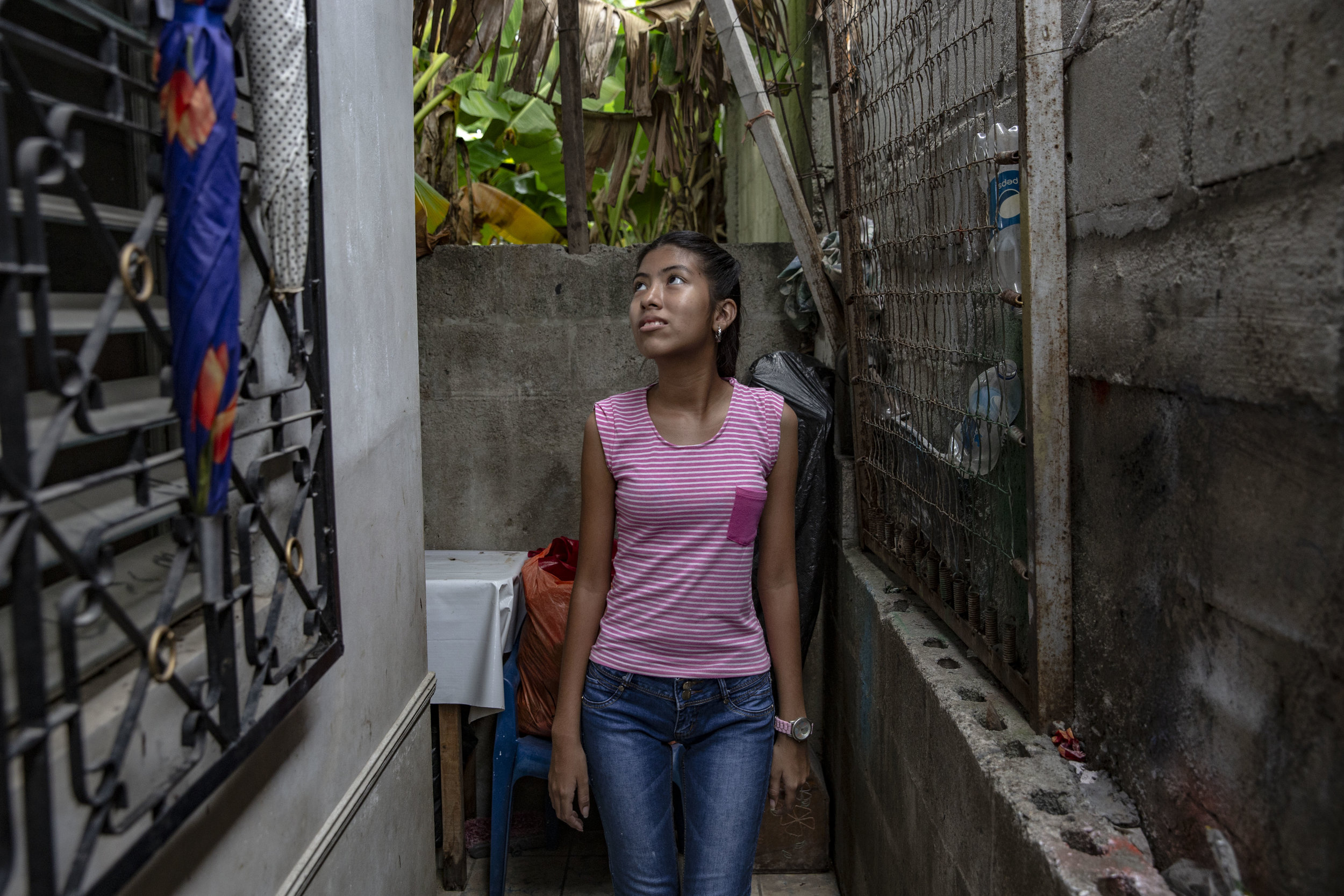
Jeymi Victoria Ortis, 14, operated for scoliosis. Before landing at the Ruth Paz her mother took her to various public clinics, but they couldn’t help her. Ruth Paz covered a small symbolic sum for the surgical operation, but even so, it took her family one year to collect all the money to get her the operation.
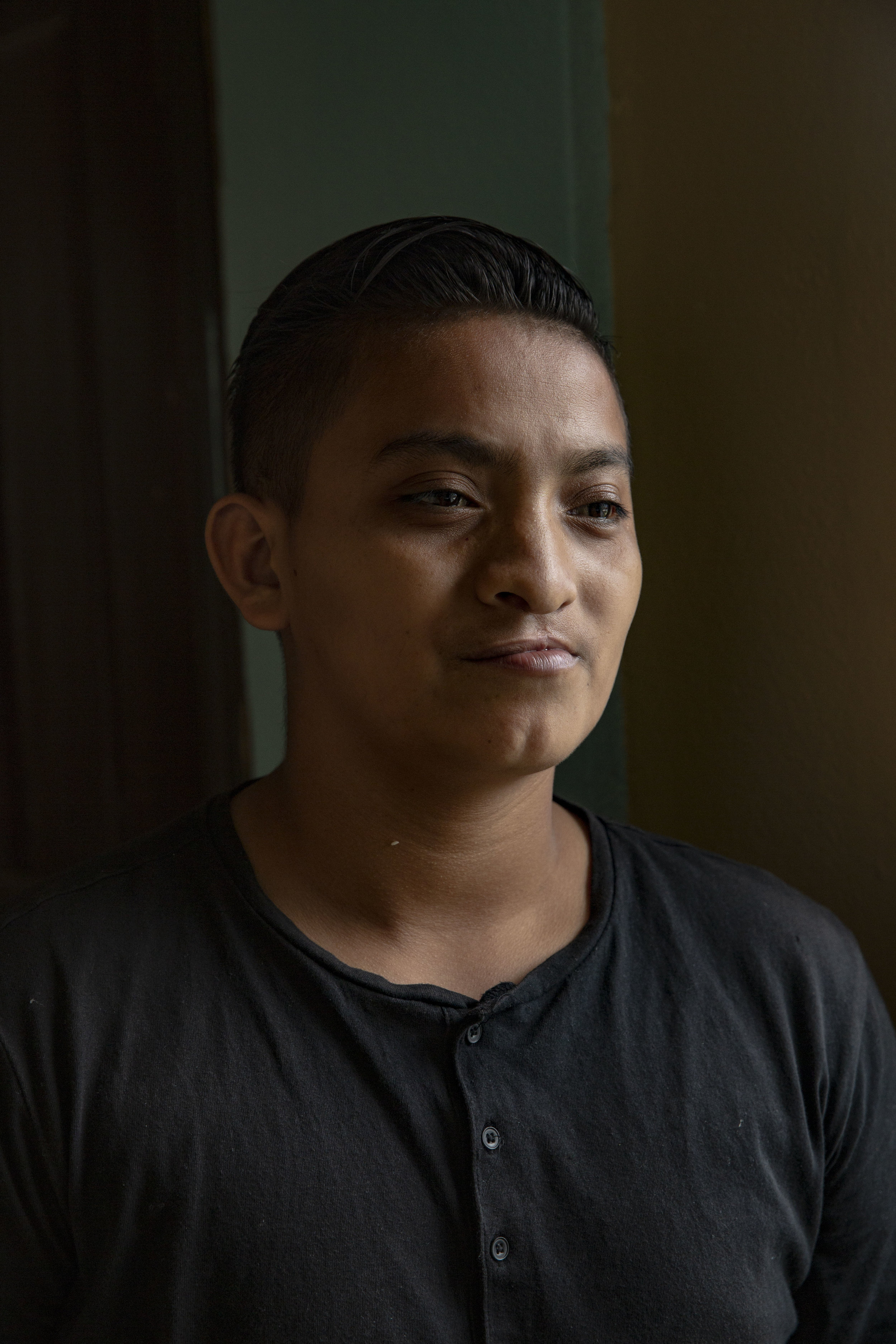
Ronnie Martinez Reyes, 21, operated four times for cleft lip and palate at the Ruth Paz Clinic in San Pedro Sula. He took the initiative to undertake the surgery. “Now I can breath normally and eat well”, he says.
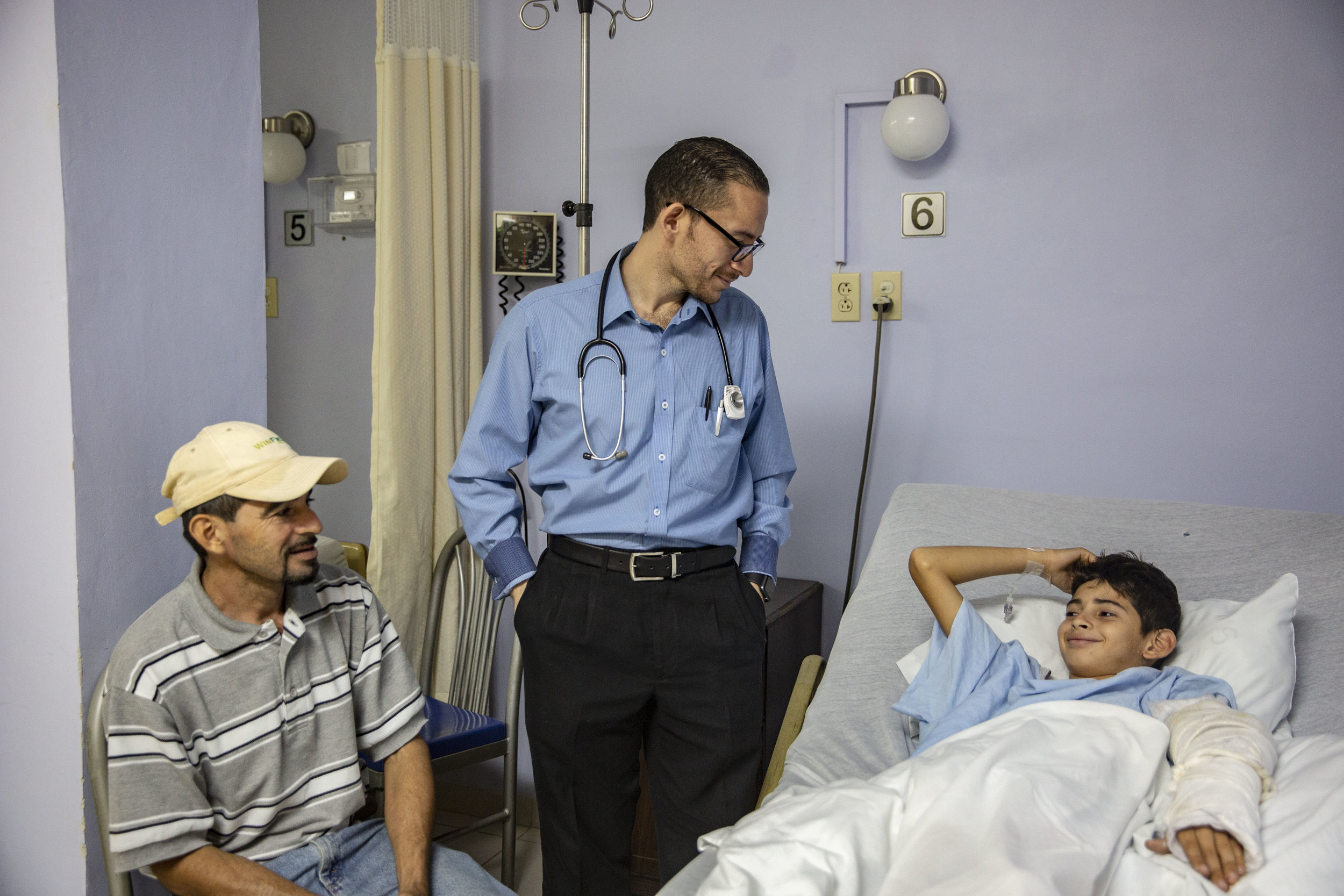
Dr.Hernandez, pedriatician, visits a boy who came out out surgery for a broken arm, at the Ruth Paz hospital in San Pedro Sula, Honduras.
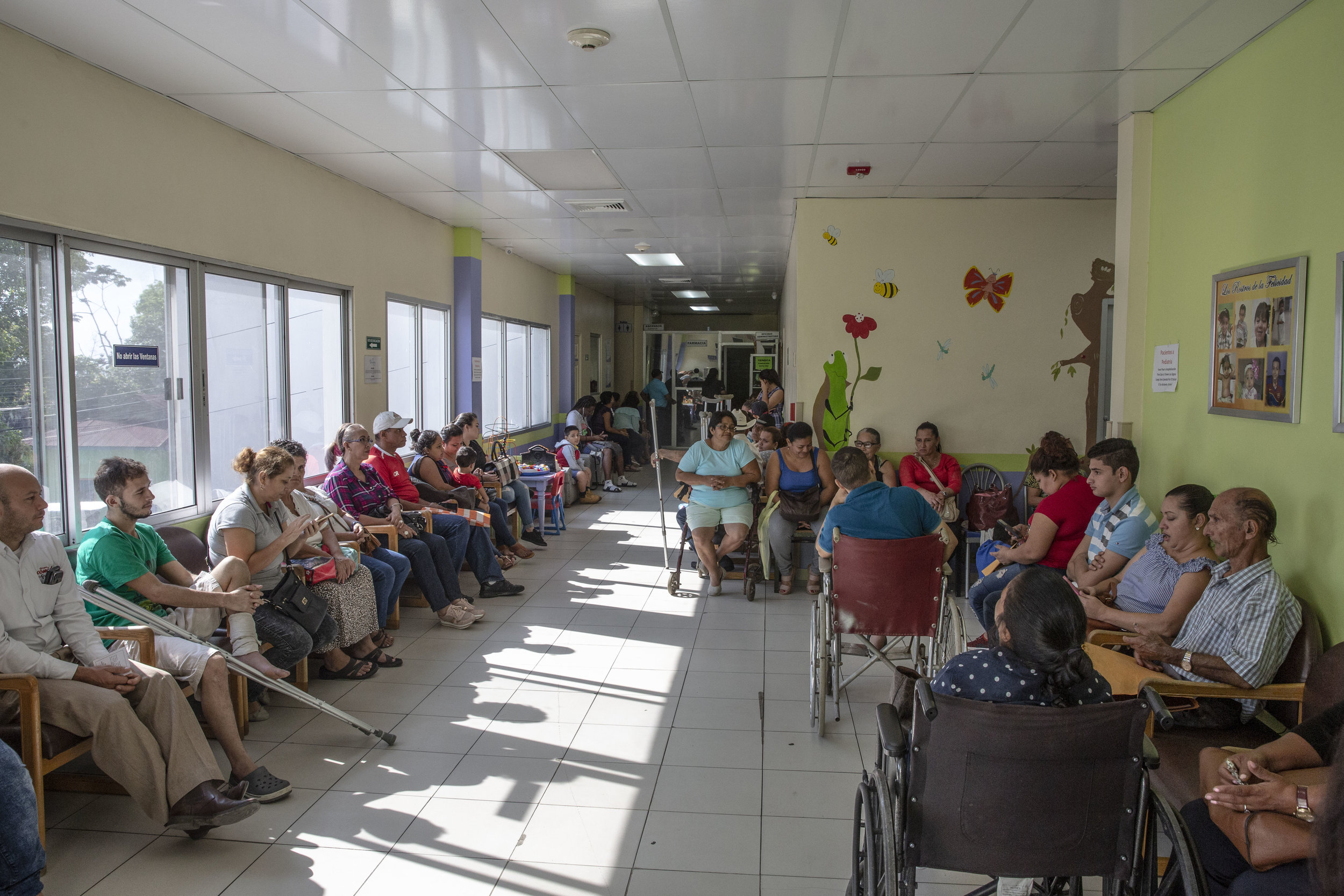
Fridays are a pretty busy day at Ruth Paz hospital in San Pedro Sula, because there is various doctors available for check ups and primary care visits.

A stuffed animal bear in once of the administration offices at the Ruth Paz hospital in San Pedro Sula. It was donated to the foundatiion and they inted to use it to organize a lottery in the hospital to raise a little bit or money.
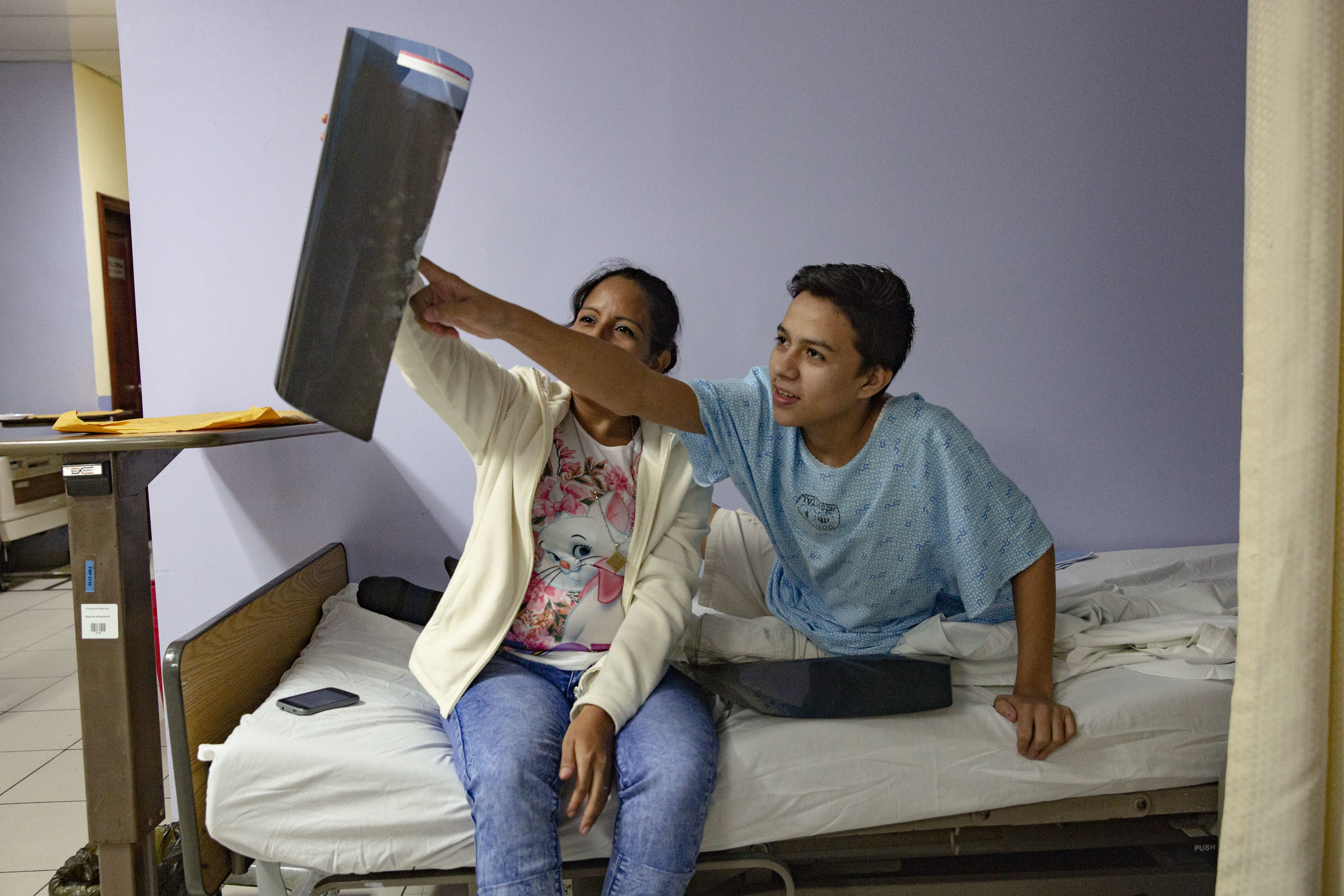
A boy and her mother look at the results of an ultrasound before his operation the following day at the Ruth Paz hospital in San Pedro Sula, Honduras.
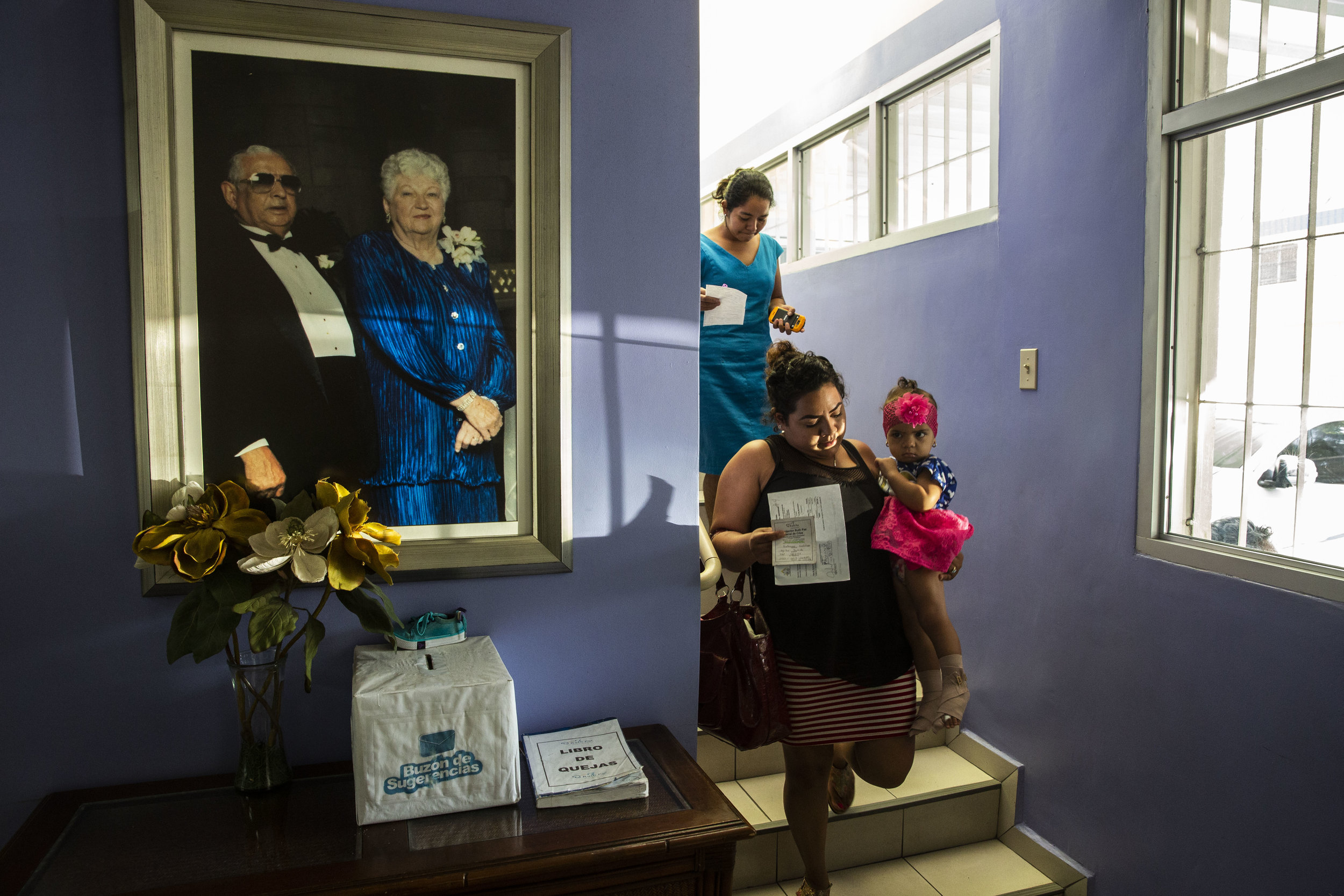
Inside the Ruth Paz hospital in San Pedro Sula, mothers of patients walk near the portrait of Madam Ruth Paz and her honduran husband Josè, who started the fundatation.
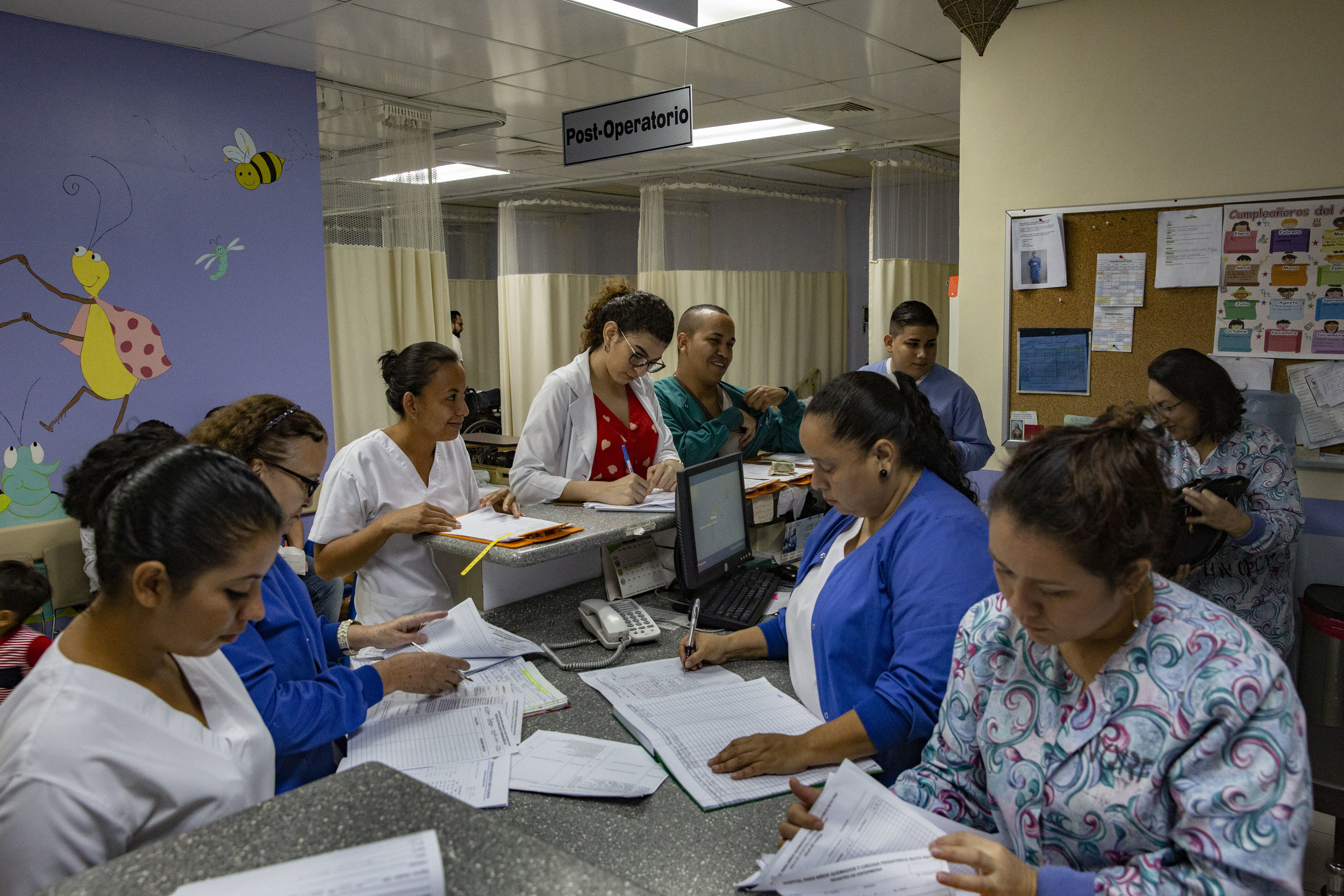
Nurses and doctors inside the Ruth Paz hospital. The doctors work at the clinic for a symbolic sum for some days of the week.
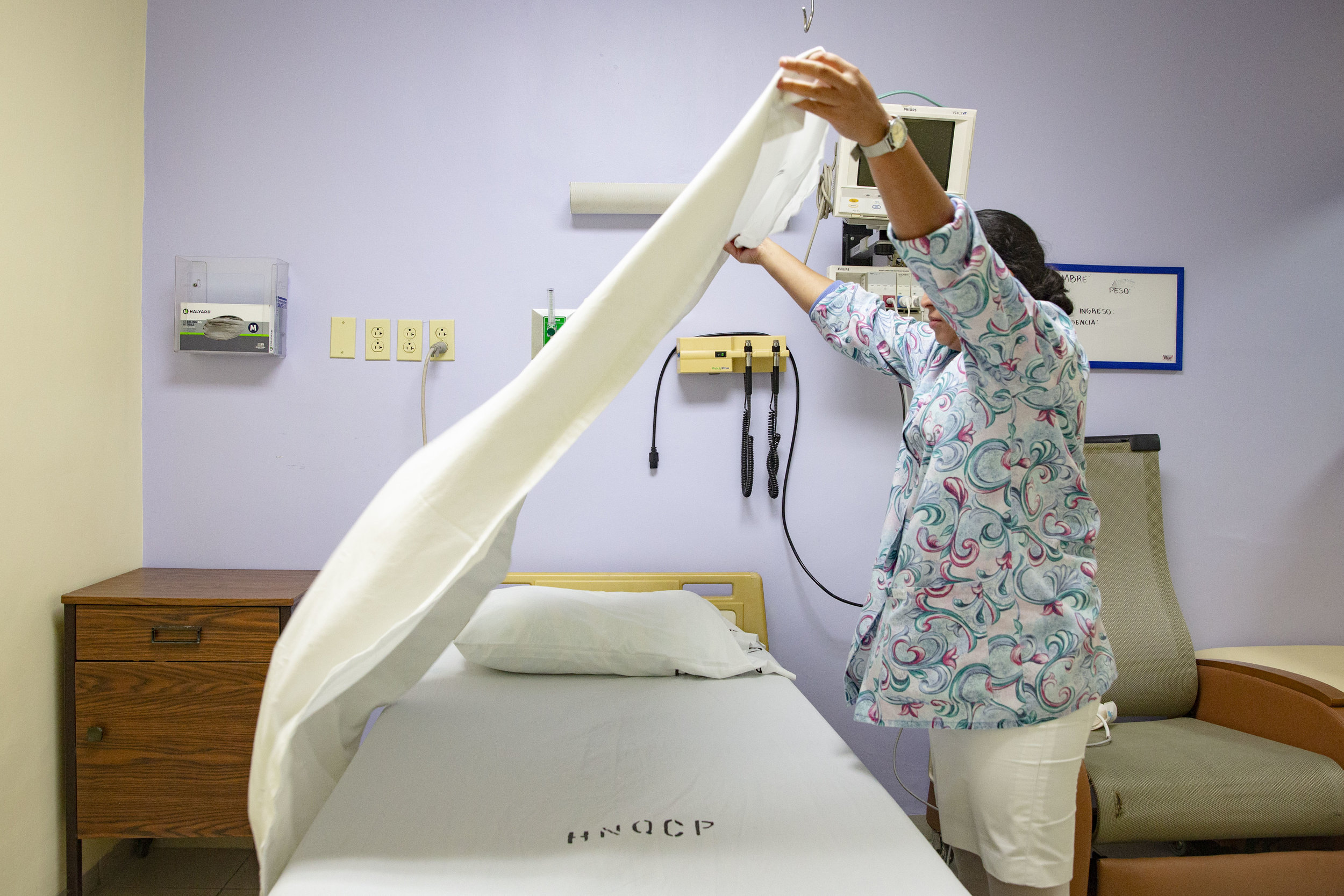
A nurse preprare a bed in the sections of the hospital that once was only reserved to burnt patiences but now is open to all those who need a reall sterile environment, at the Ruth Paz hospital in San Pedro Sula, Honduras.
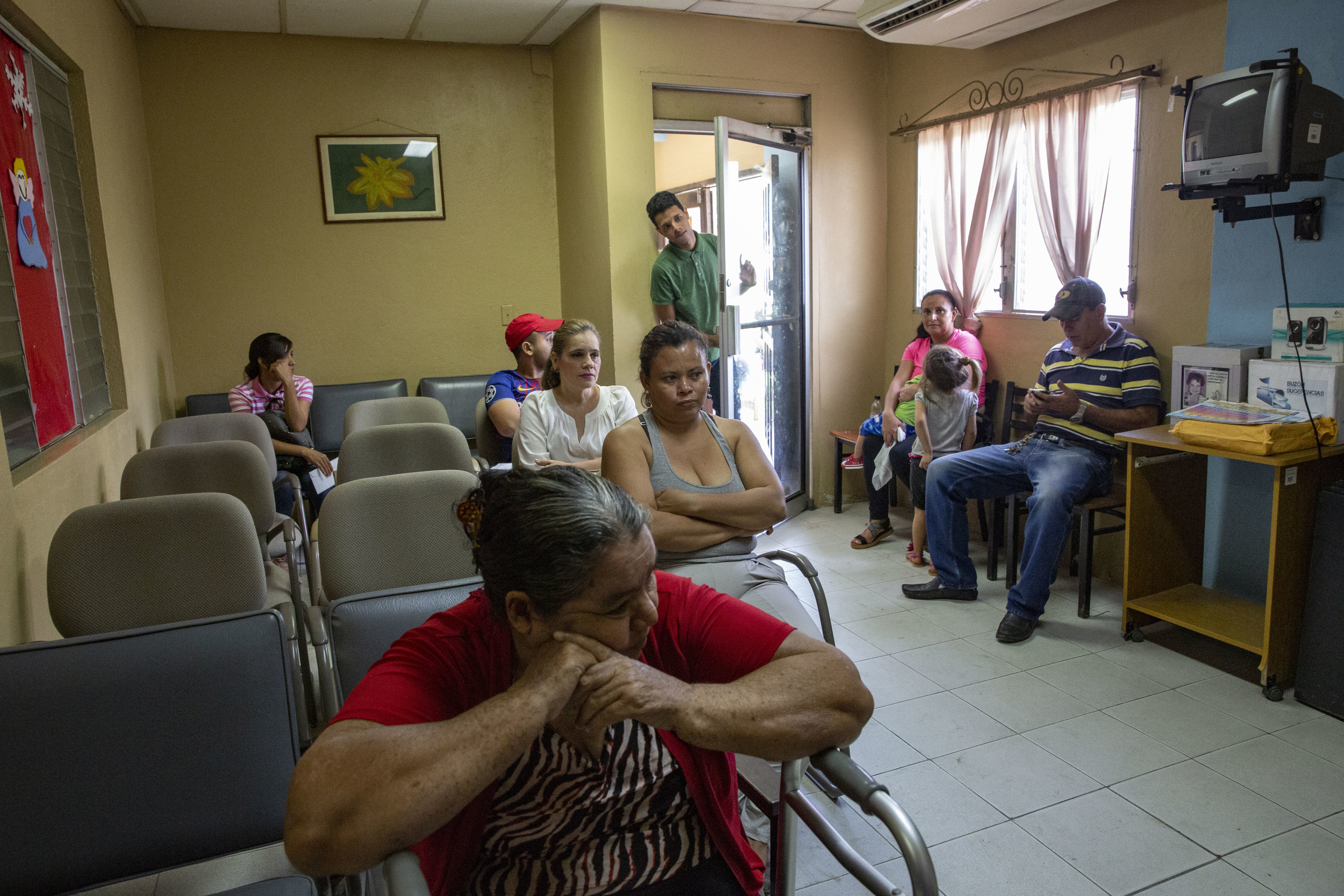
People wait to get the medicines and see the doctors in general medicine, dentistry, and orthodontics at the Ruth Paz clinic in Bogràn, a pretty dangerous neighborohood in San Pedro Sula, Honduras.
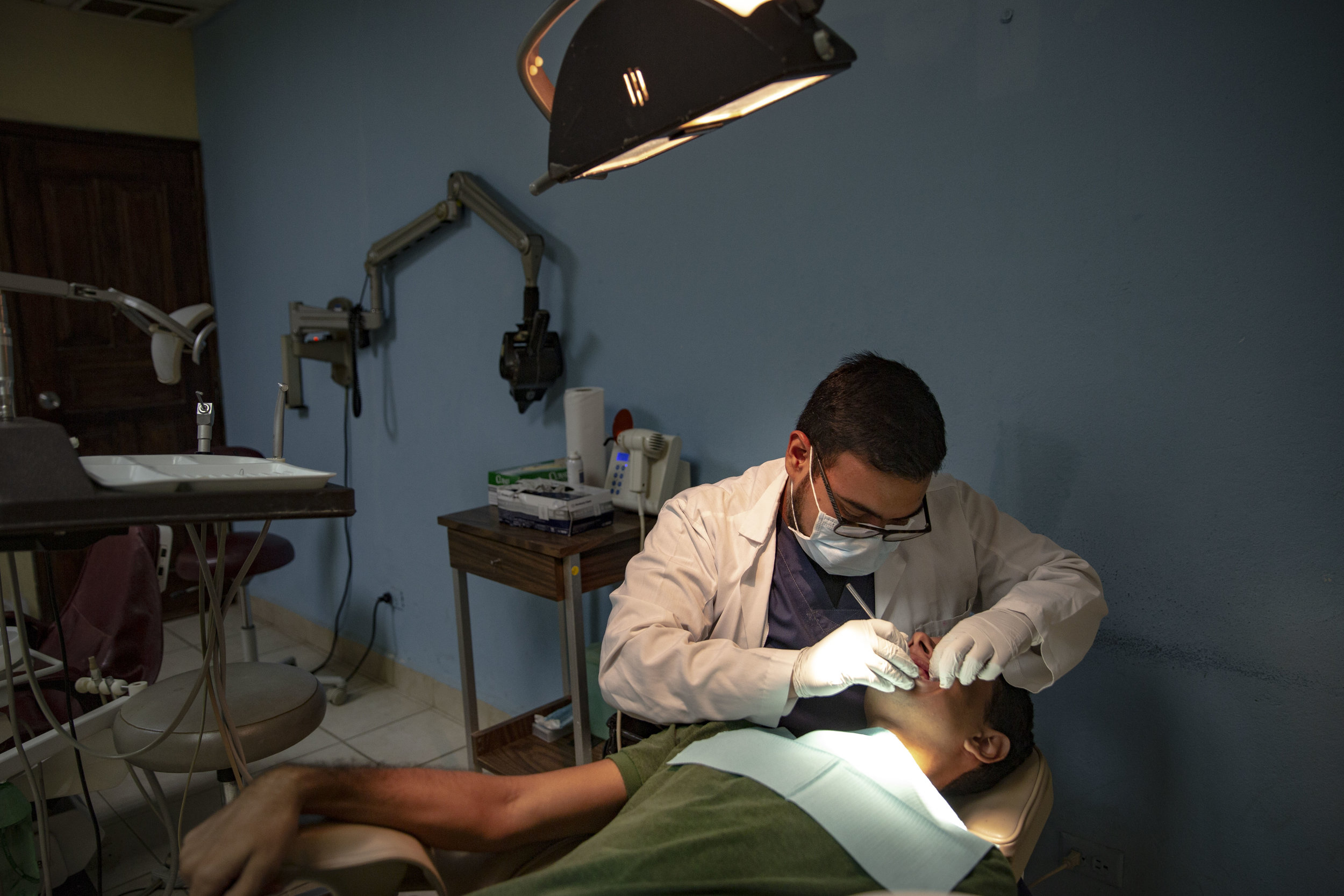
A dentist treat a patient at the Ruth Paz clinic in Bogràn, a pretty dangerous neighborohood in San Pedro Sula, Honduras.
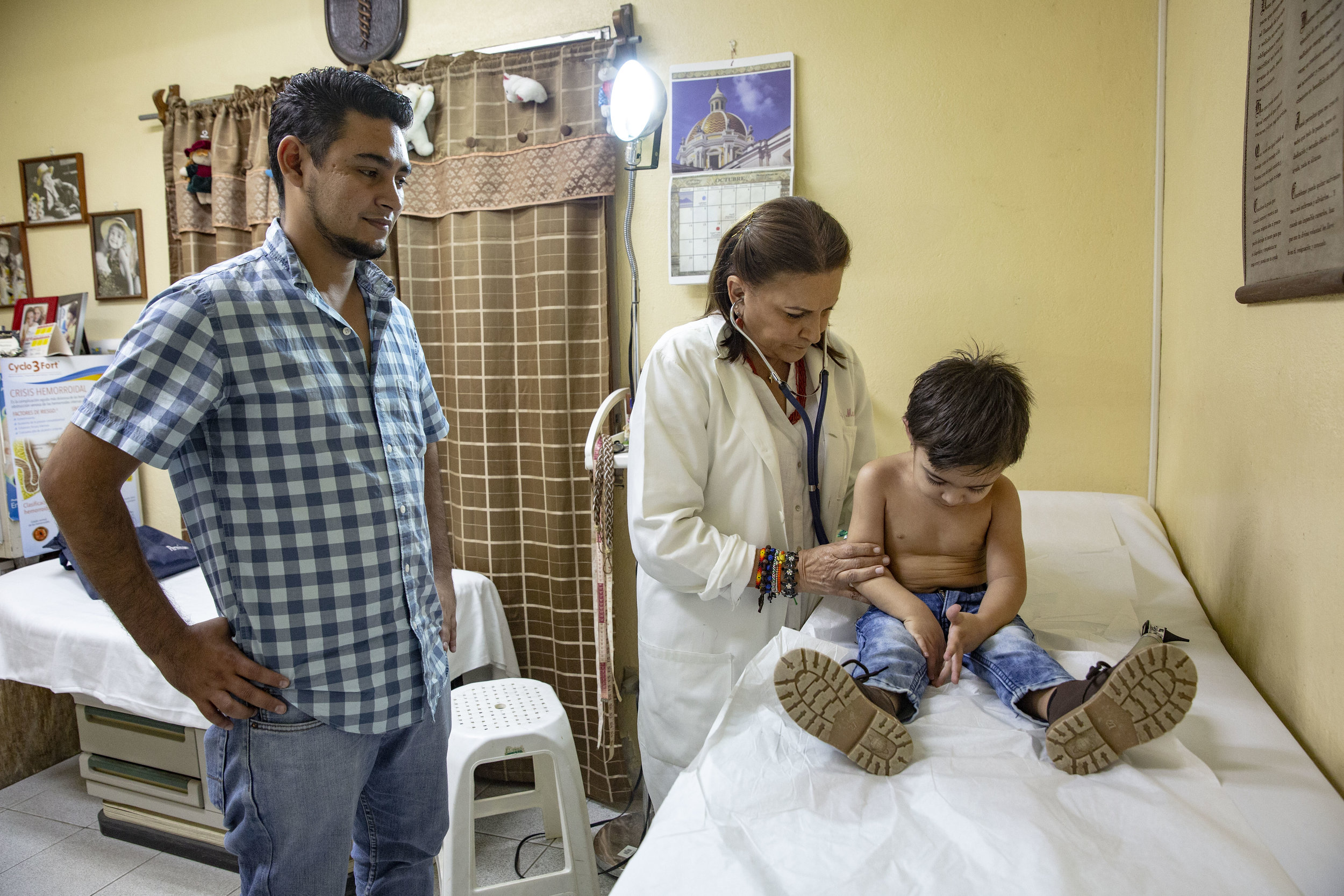
Doctor Madrid visit a child while his father attends, at the ruth Paz clinic in San Pedro Sula, where various services are provided:various services: general medicine, dentistry, and orthodontics.
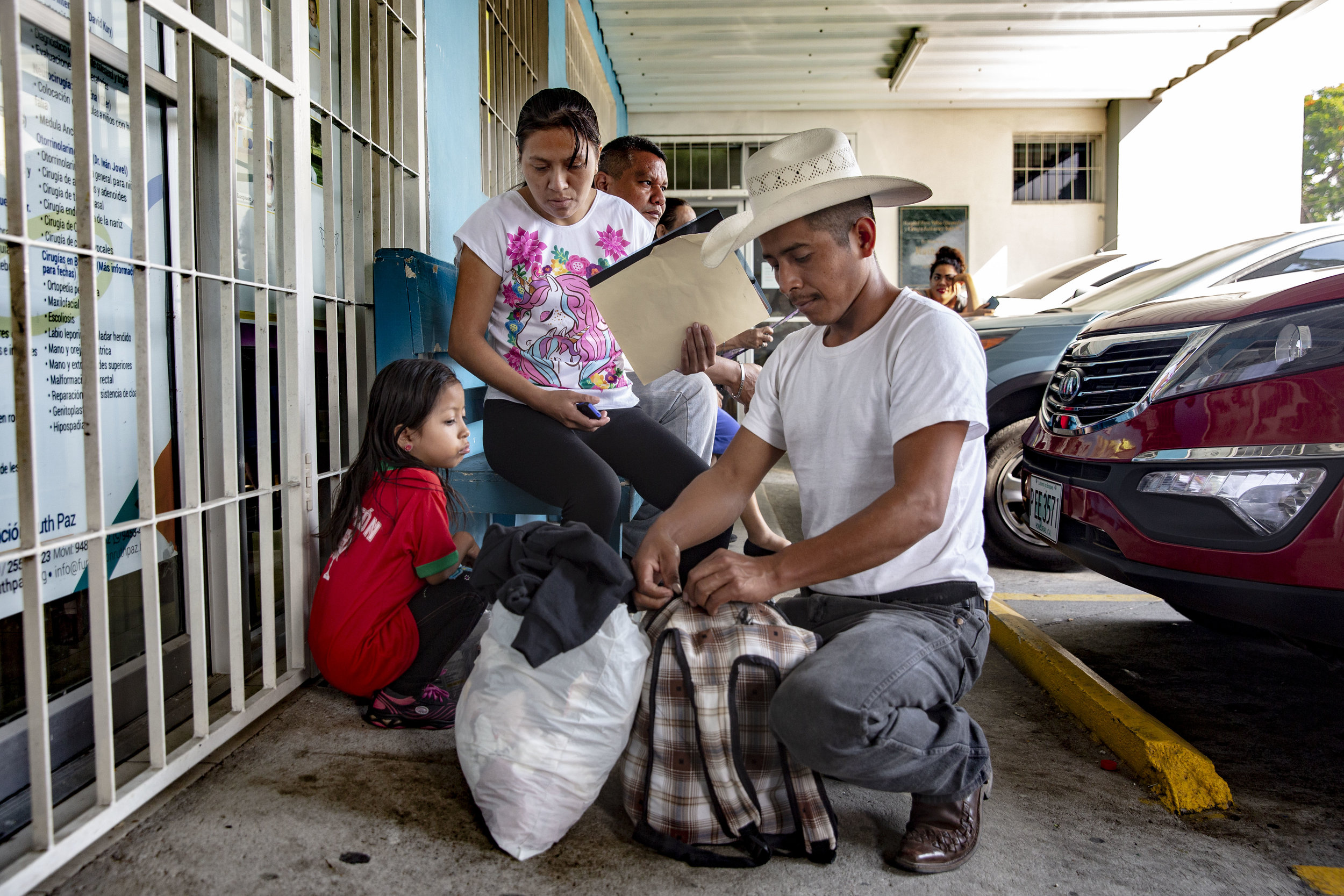
A family from Colon, travelled for eight hours and 190km (120miles) by bus to arrive at the Ruth Paz hospital in San Pedro Sula, to have their daughter Mirna of five years old, a medical examination for heart realted problems.

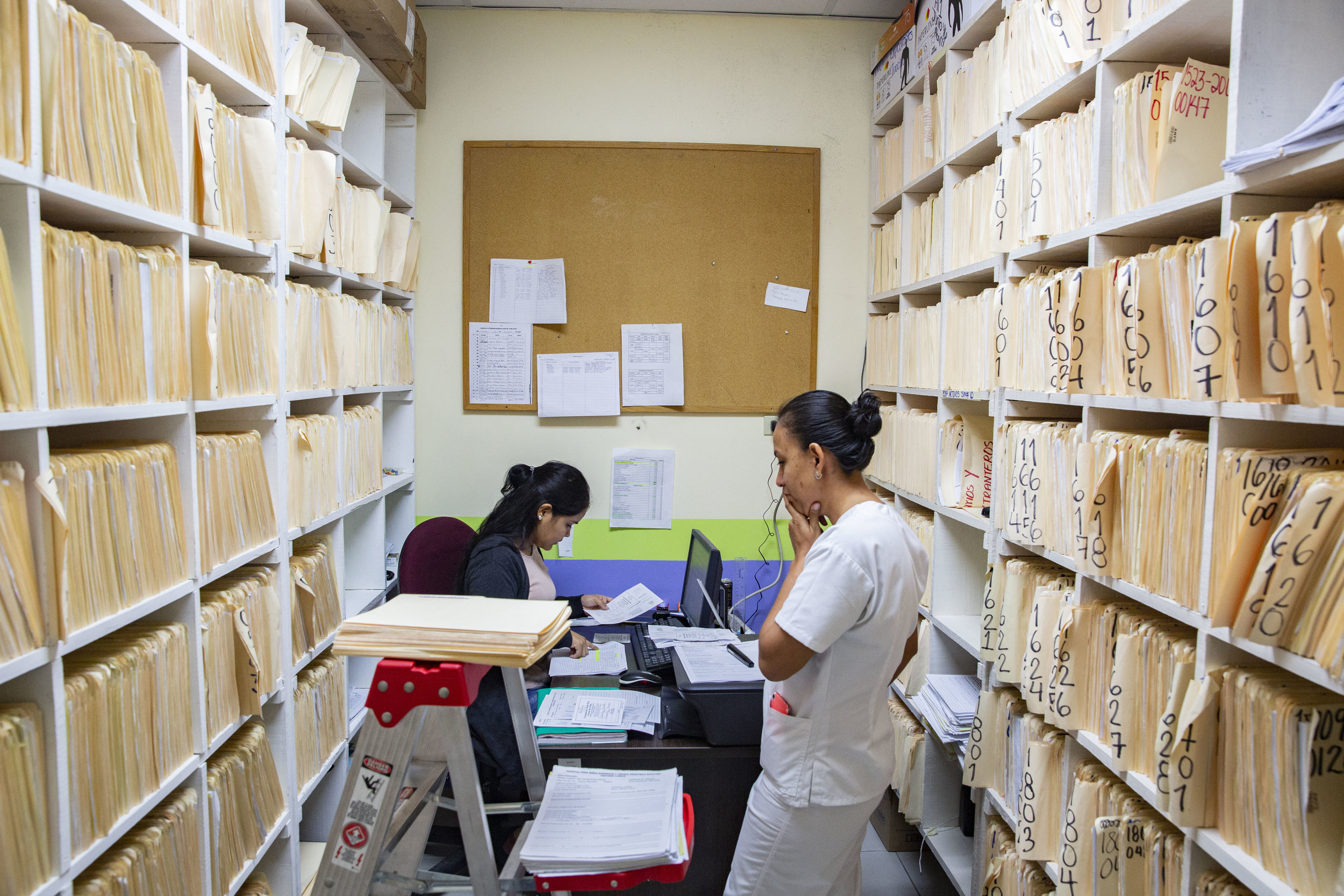
Archives inside the Ruth Paz hospital in San Pedro Sula, Honduras.
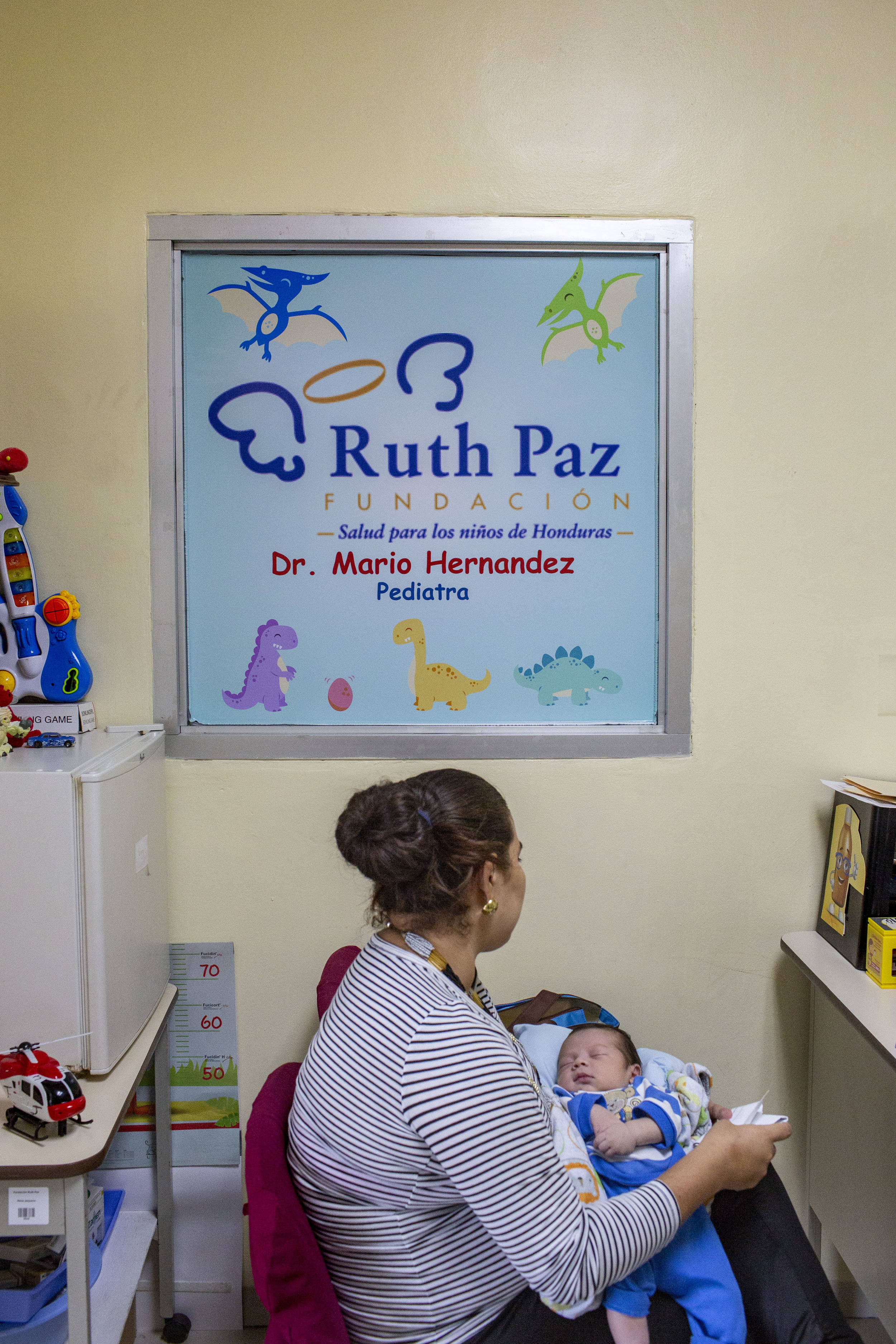
A mother gets his son checked up by a pediatrist at the Ruth Paz hospital in San Pedro Sula, Honduras.
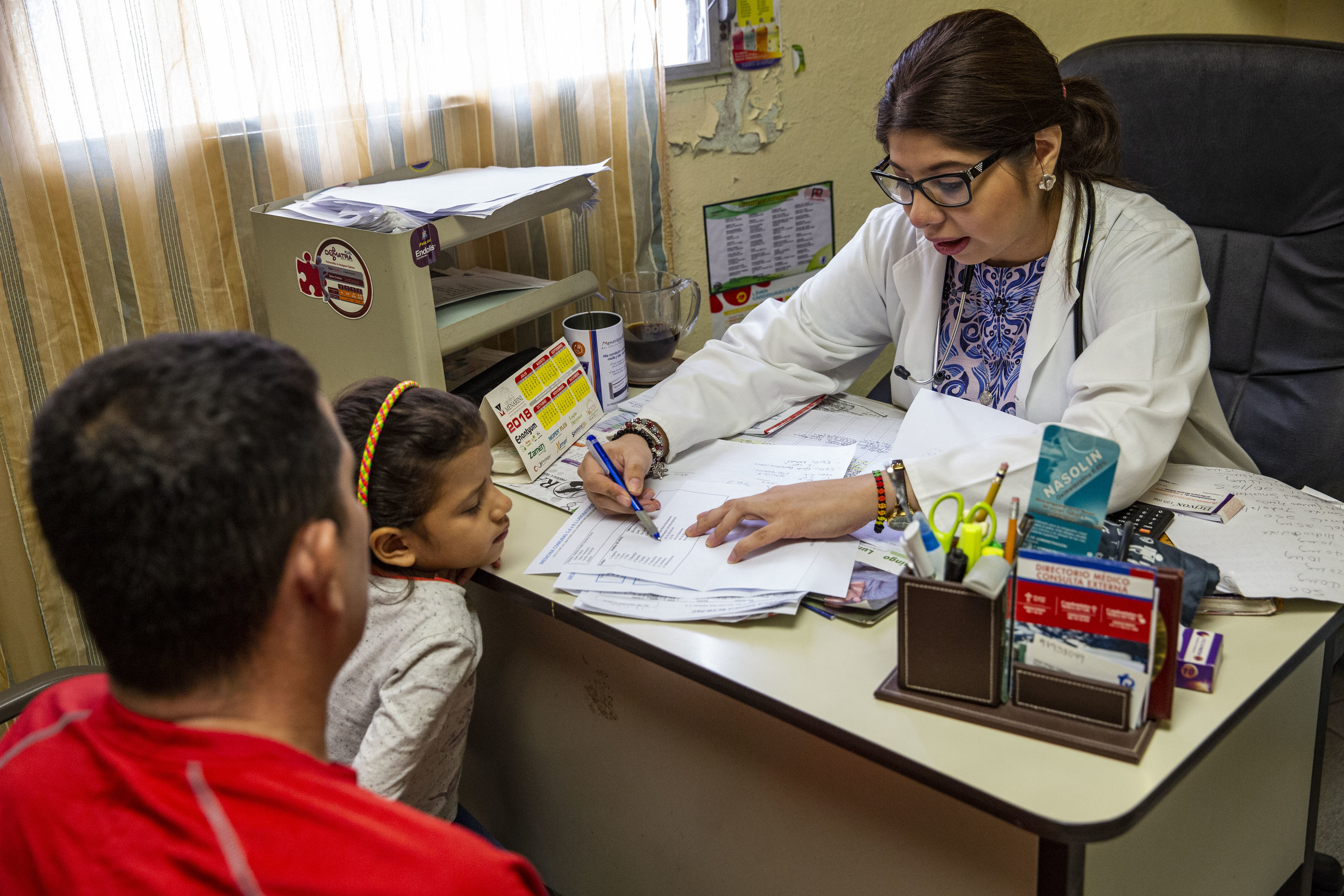
Doctor Sara Diaz prescribe medicines and give informations to a father and his daughter during a check-up at the Ruth Paz clinic in Bogràn, a pretty dangerous neighborohood in San Pedro Sula, Honduras.
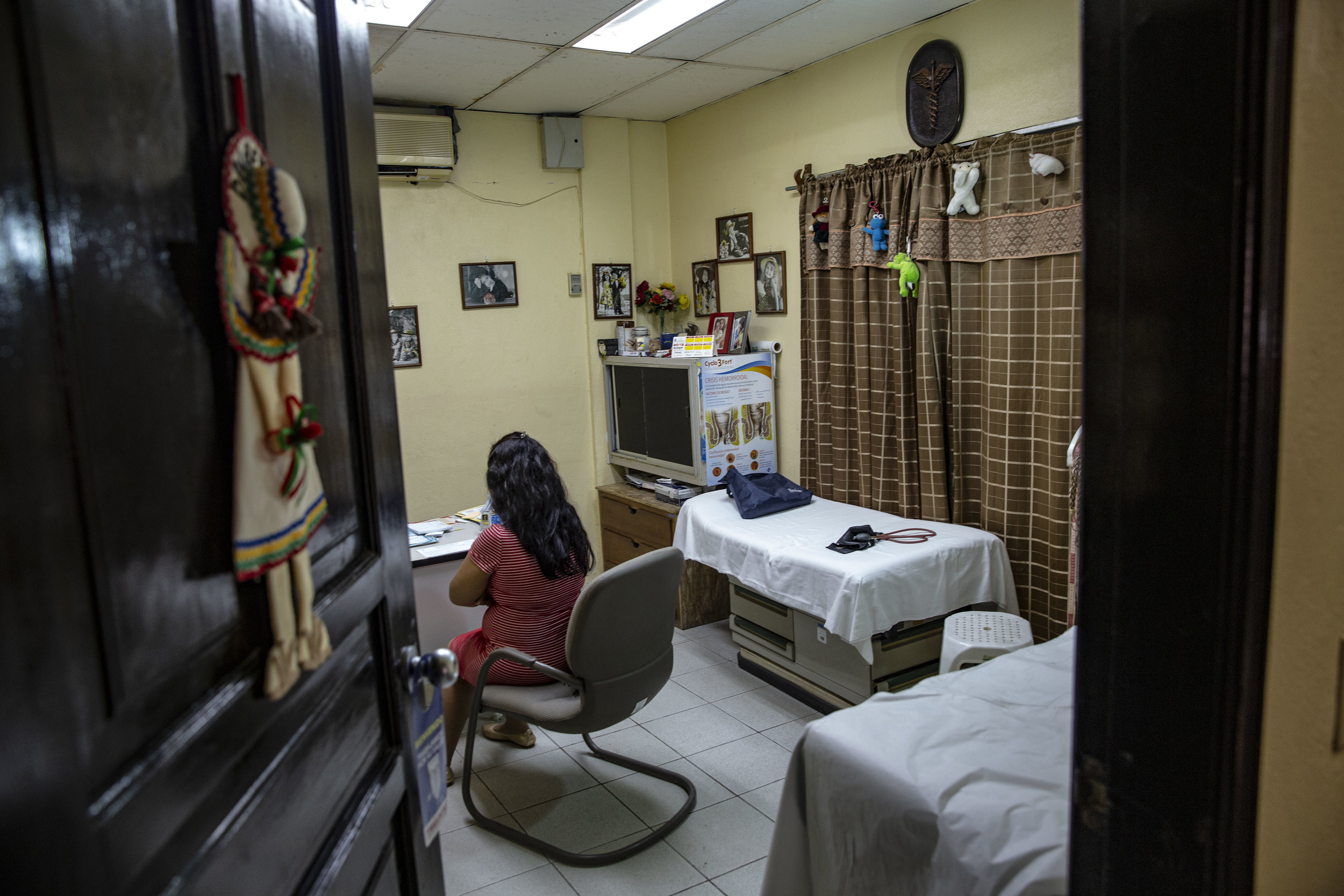
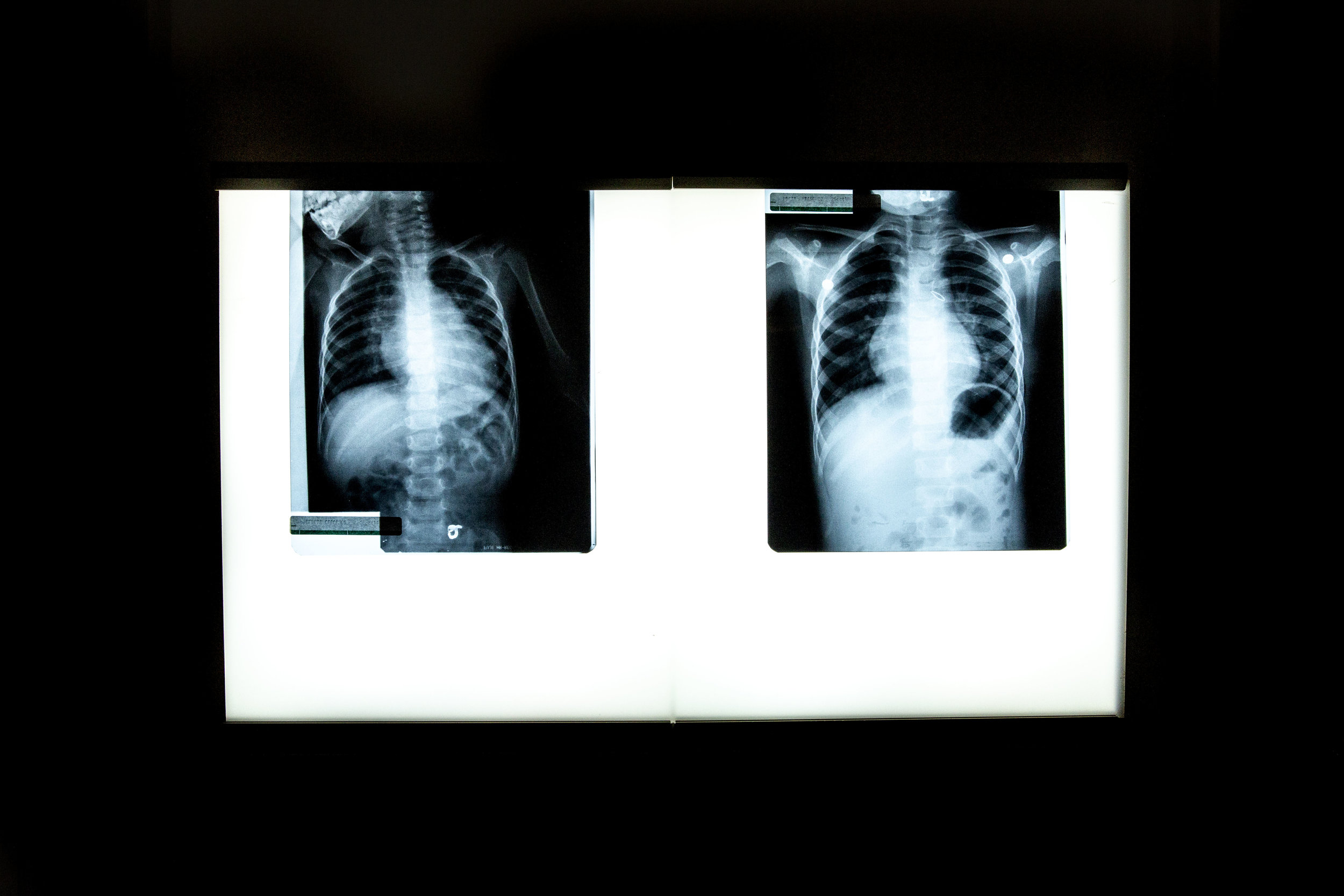
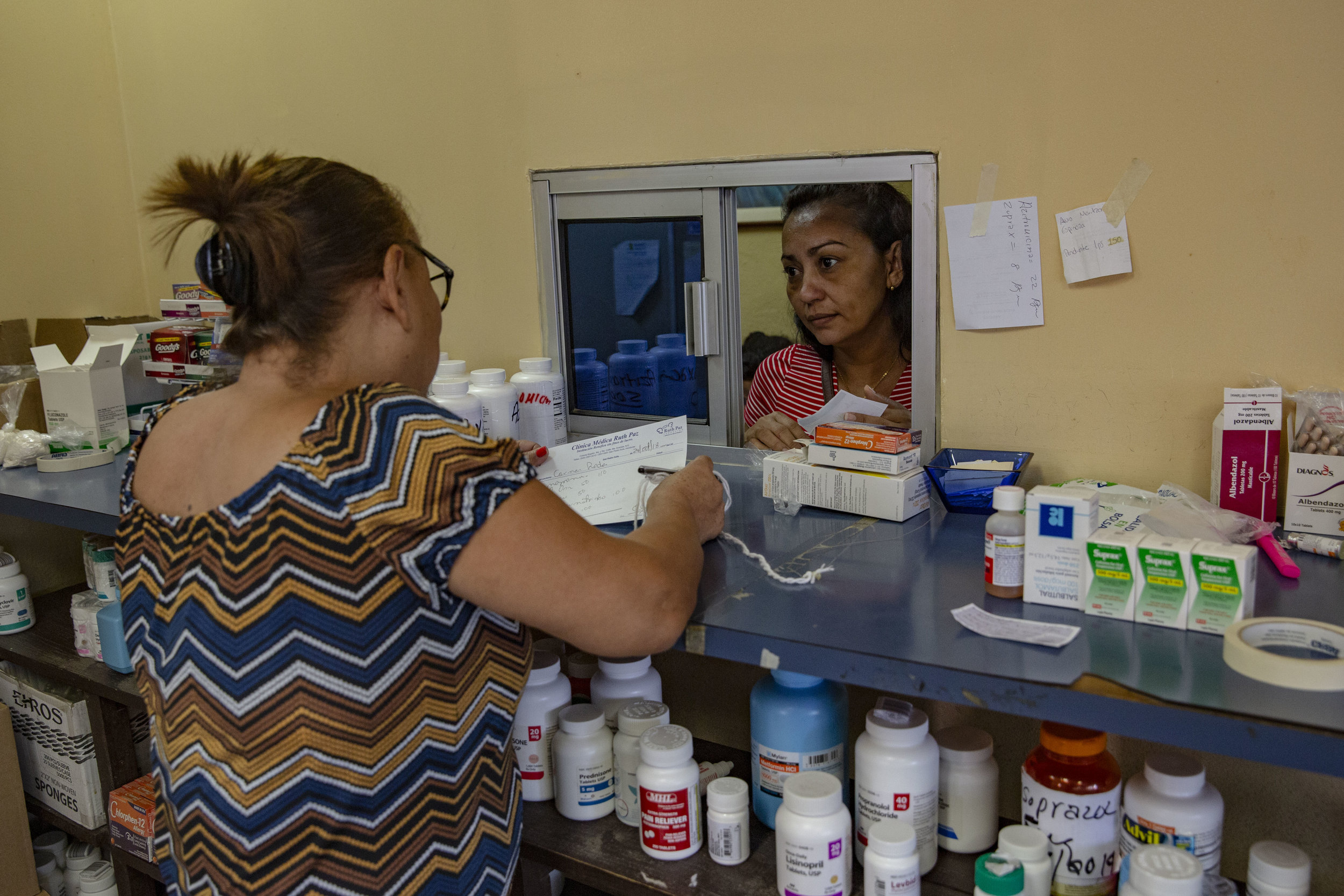
Patients get their free medications at the Ruth Paz clinic in Bogràn, a pretty dangerous neighborohood in San Pedro Sula, Honduras.
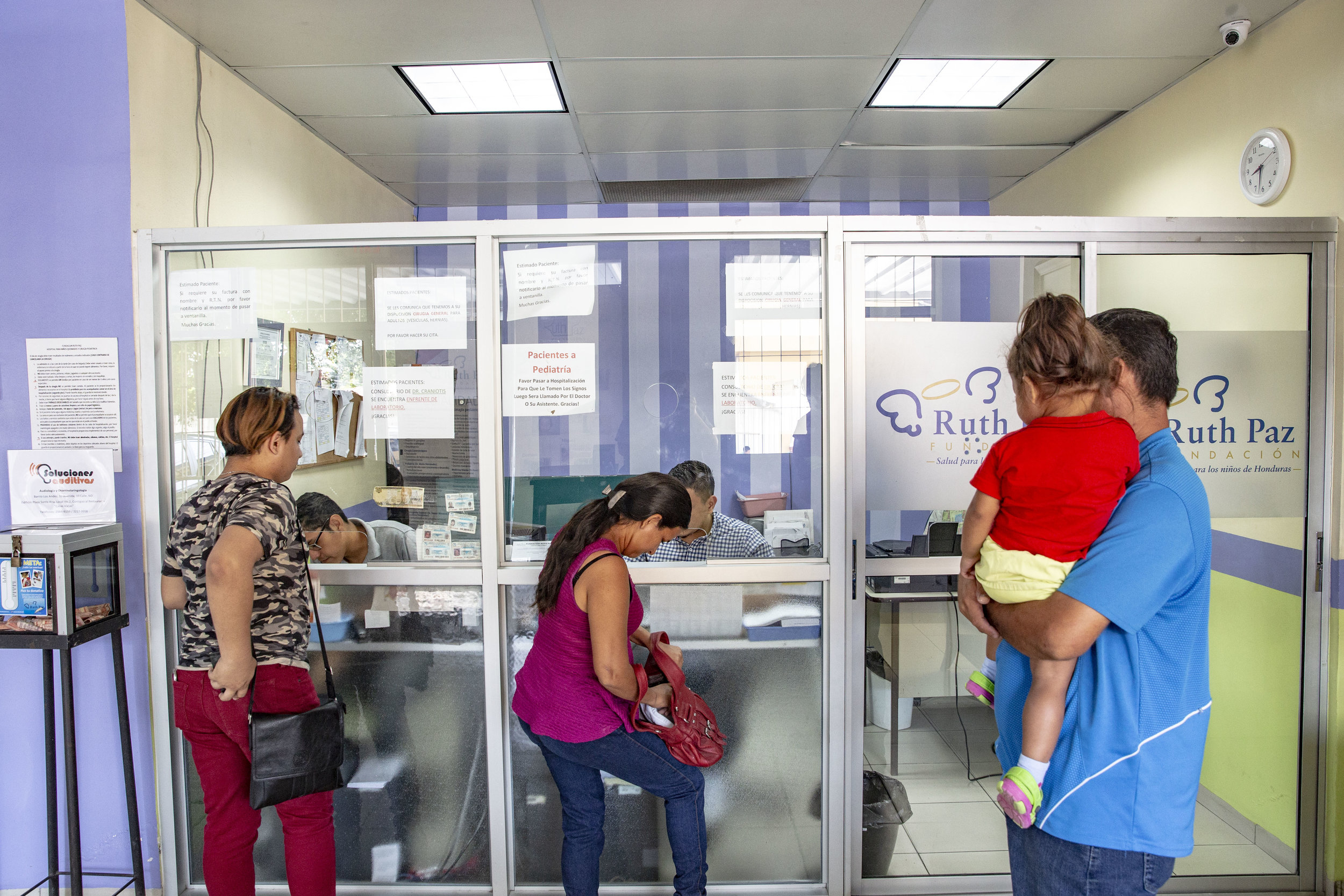
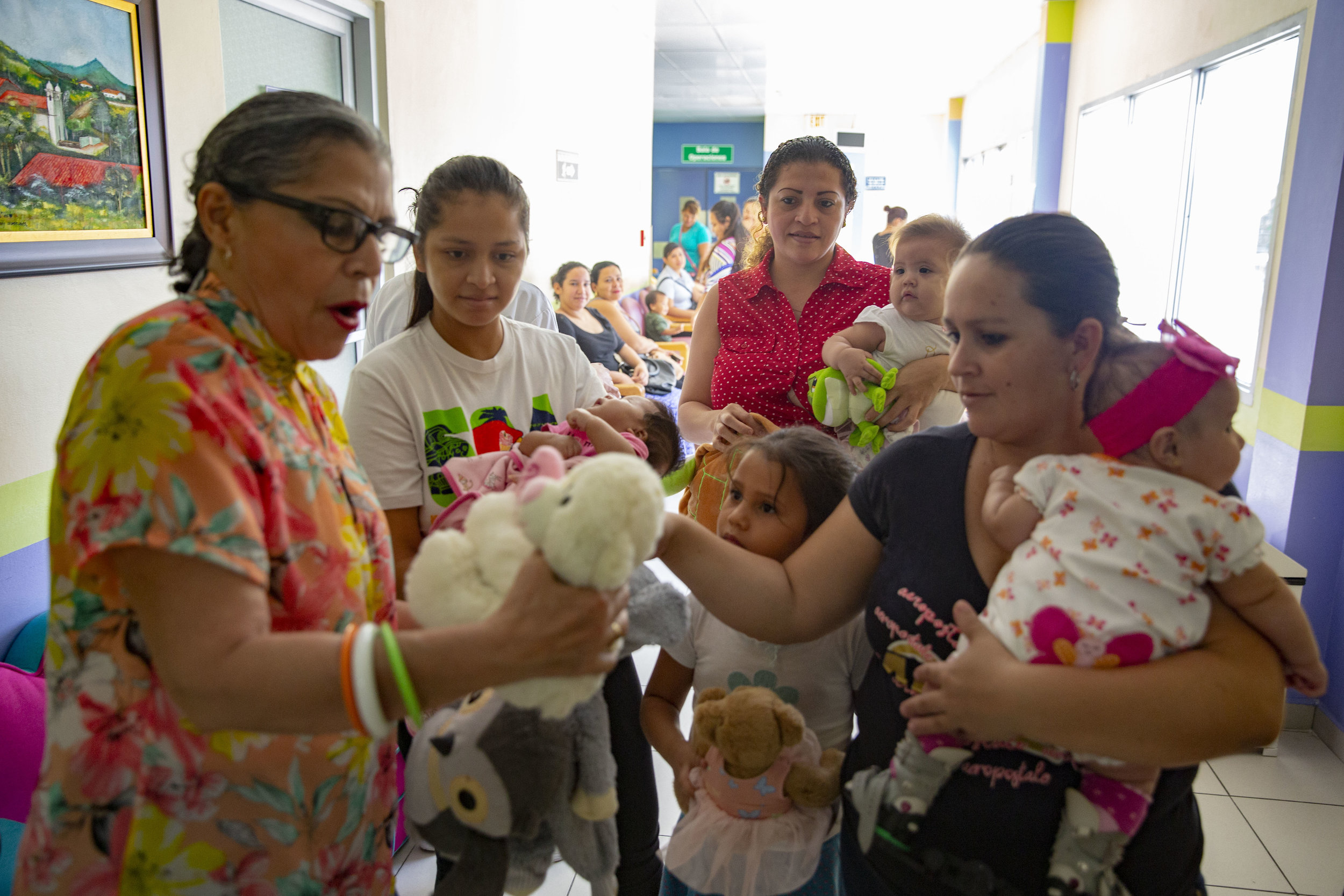
Amanda Restrepo, who has been working at the Ruth Paz hospital in San Pedro Sula since it opened, sell for few lempiras stuffed animals to the mothers waiting. It is a way for them to raise a little bit of extra funds.
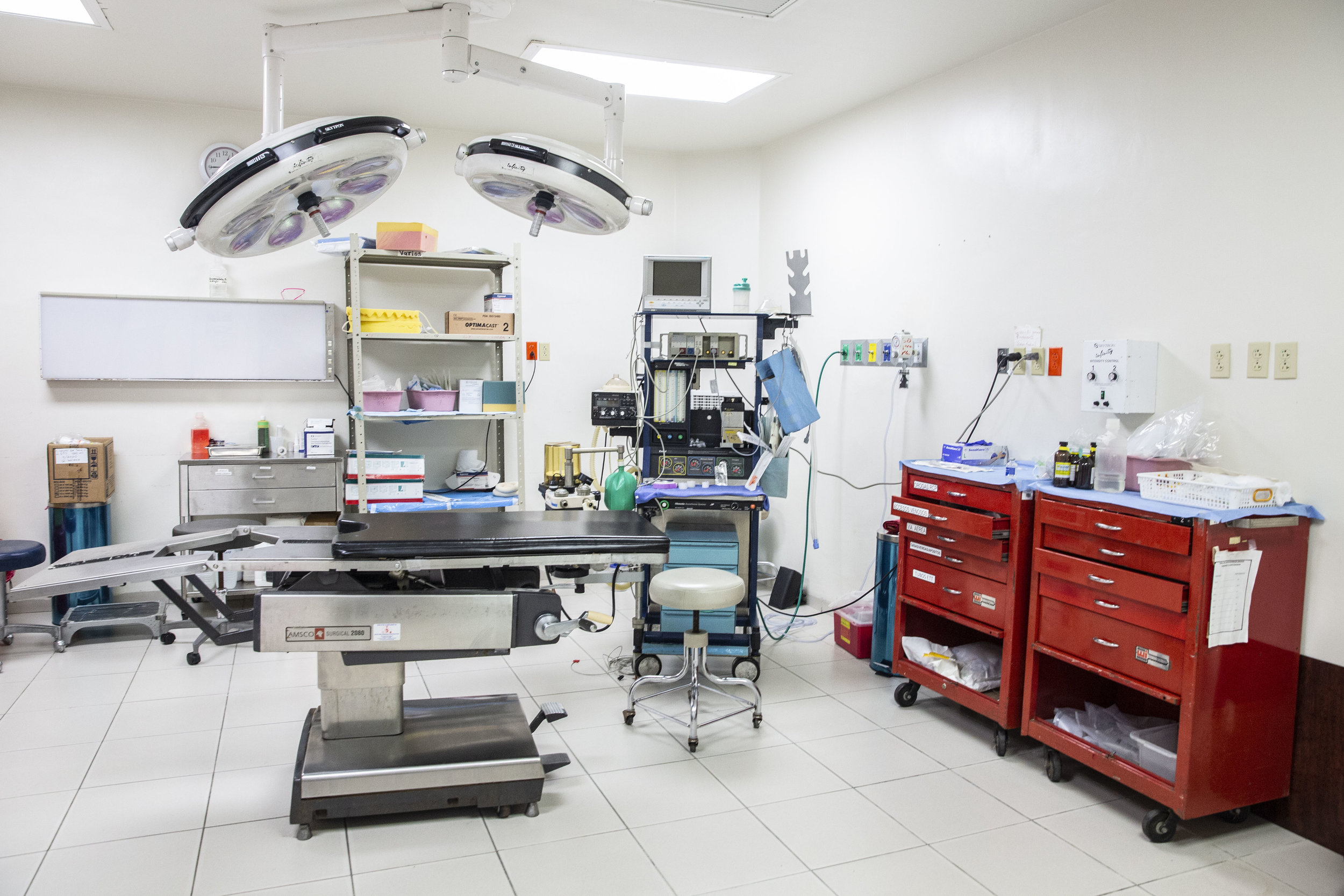
A surgery room inside the Ruth Paz hospital in San Pedro Sula. Since it opened they have treated and given medical attention to nearly 300,000 people in Honduras.
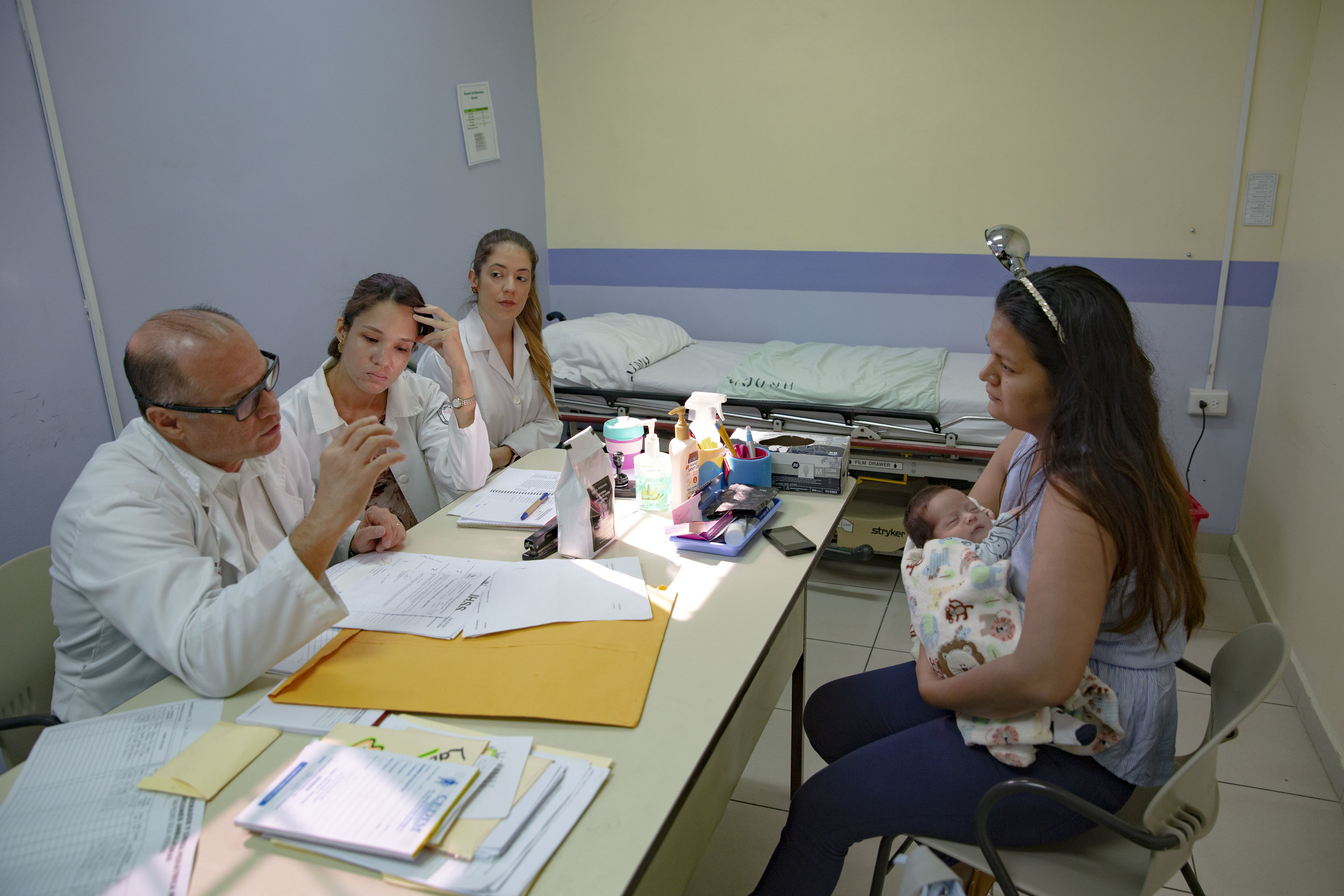
Doctor Craniotti, head of the Ruth Paz hospital in San Pedro Sula and pedriatic surgeon specialized in anorectal disfunctions speak to a mother and her little baby alongisde his assistans.
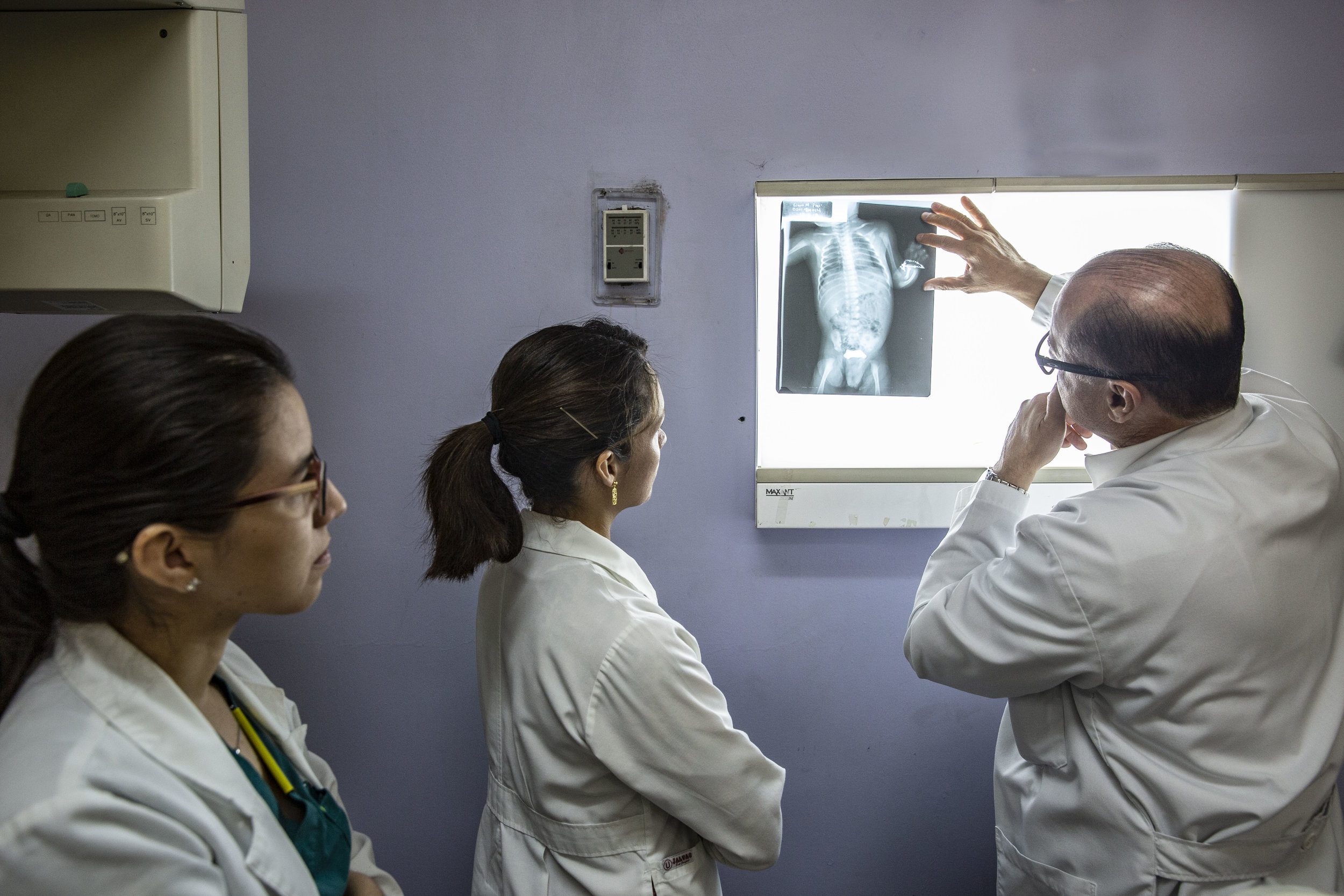
Doctor Craniotti, head of the Ruth Paz hospital in San Pedro Sula and pedriatic surgeon specialized in anorectal disfunctions works alongisde his assistans.
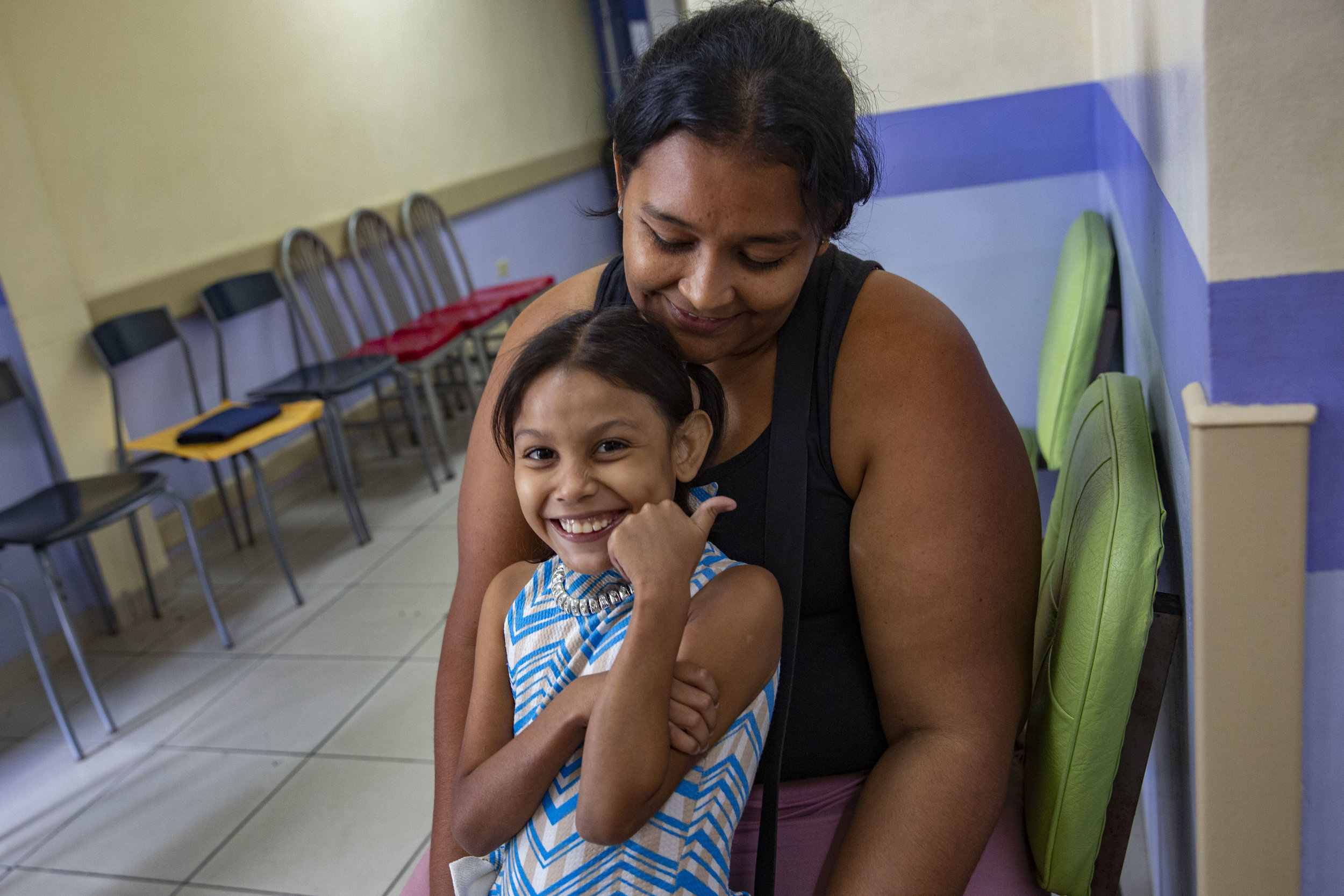
A mother and child waiting to be visited by Dr. Craniotti, head and pedriatic surgeon at the Ruth Paz hospital in San Pedro Sula, Honduras.
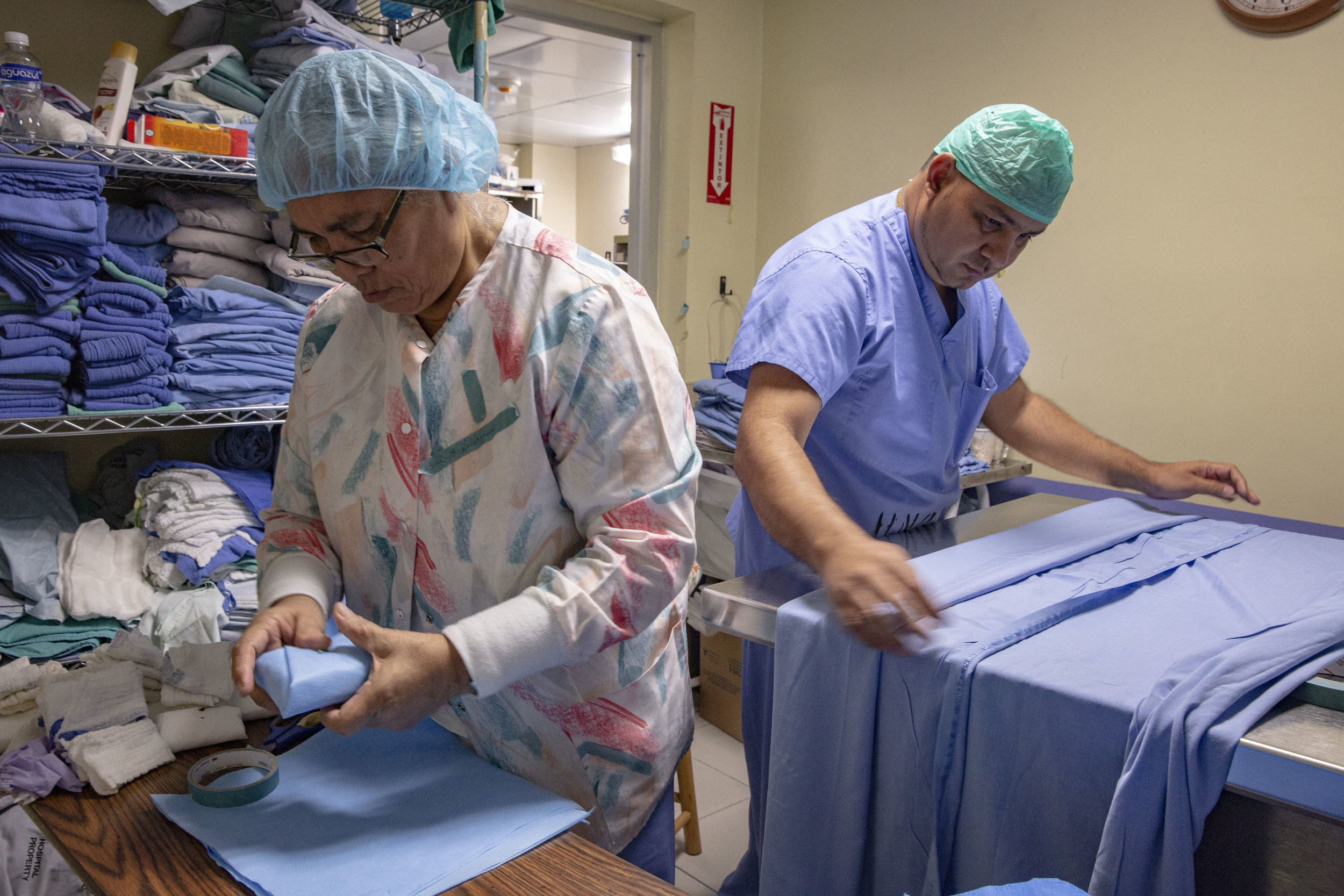
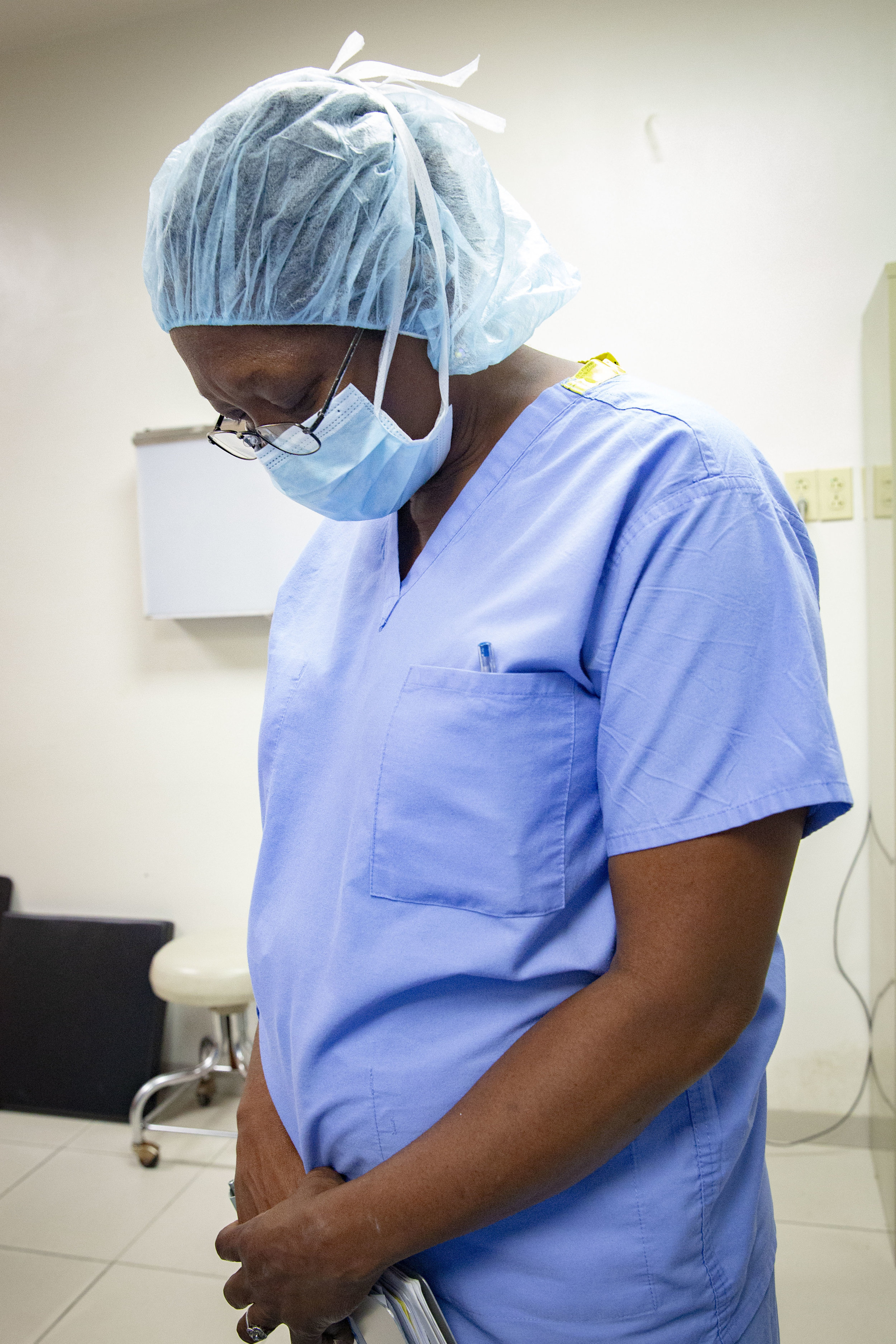
A nurse prays ahead of a surgery operation on a child at the Ruth Paz hospital in San Pedro Sula, Honduras.
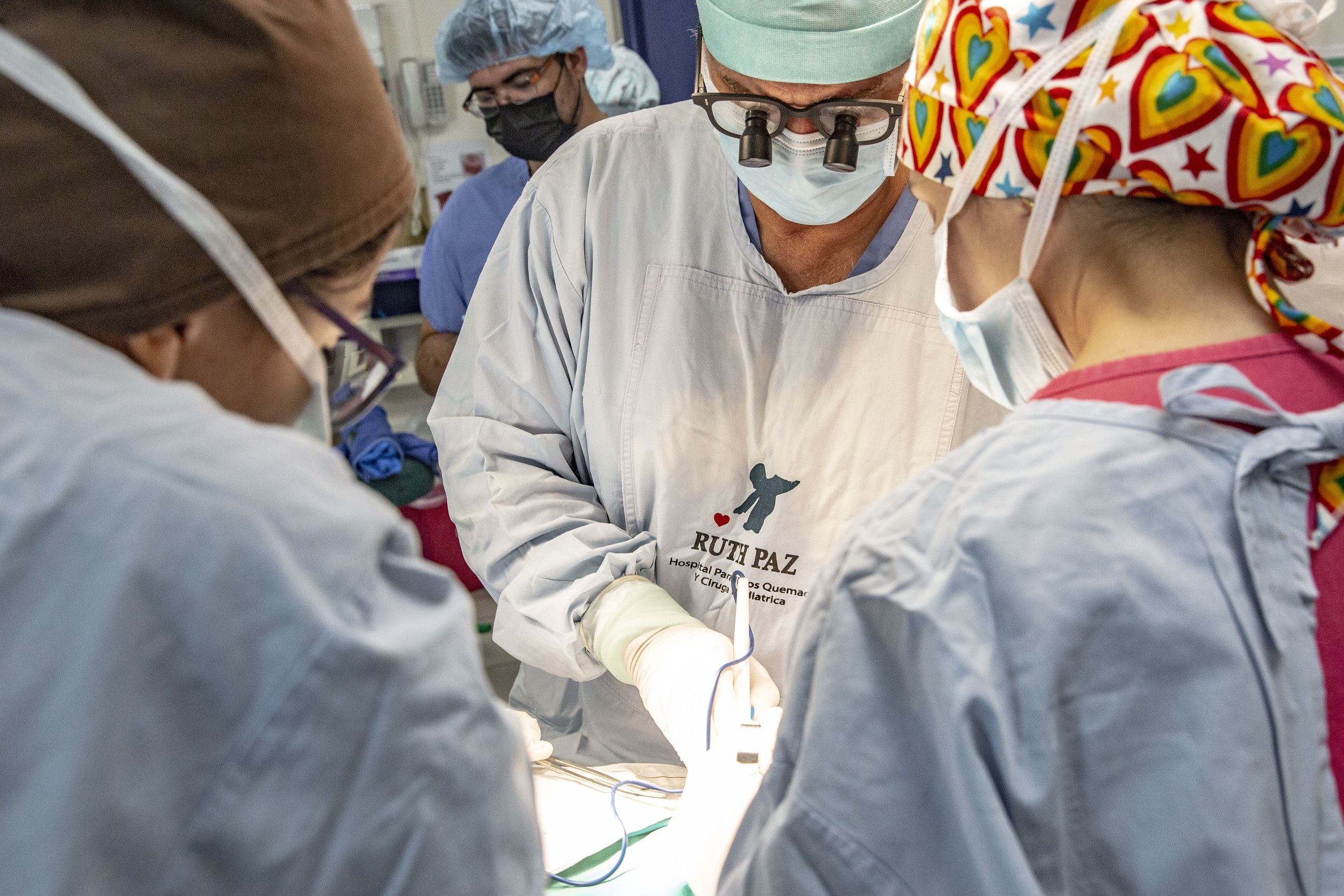
Dr.Craniotti, pediatric surgeon and specialist in anorectal disfunctions operates a child at the Ruth Paz hospital in San Pedro Sula, Honduras.
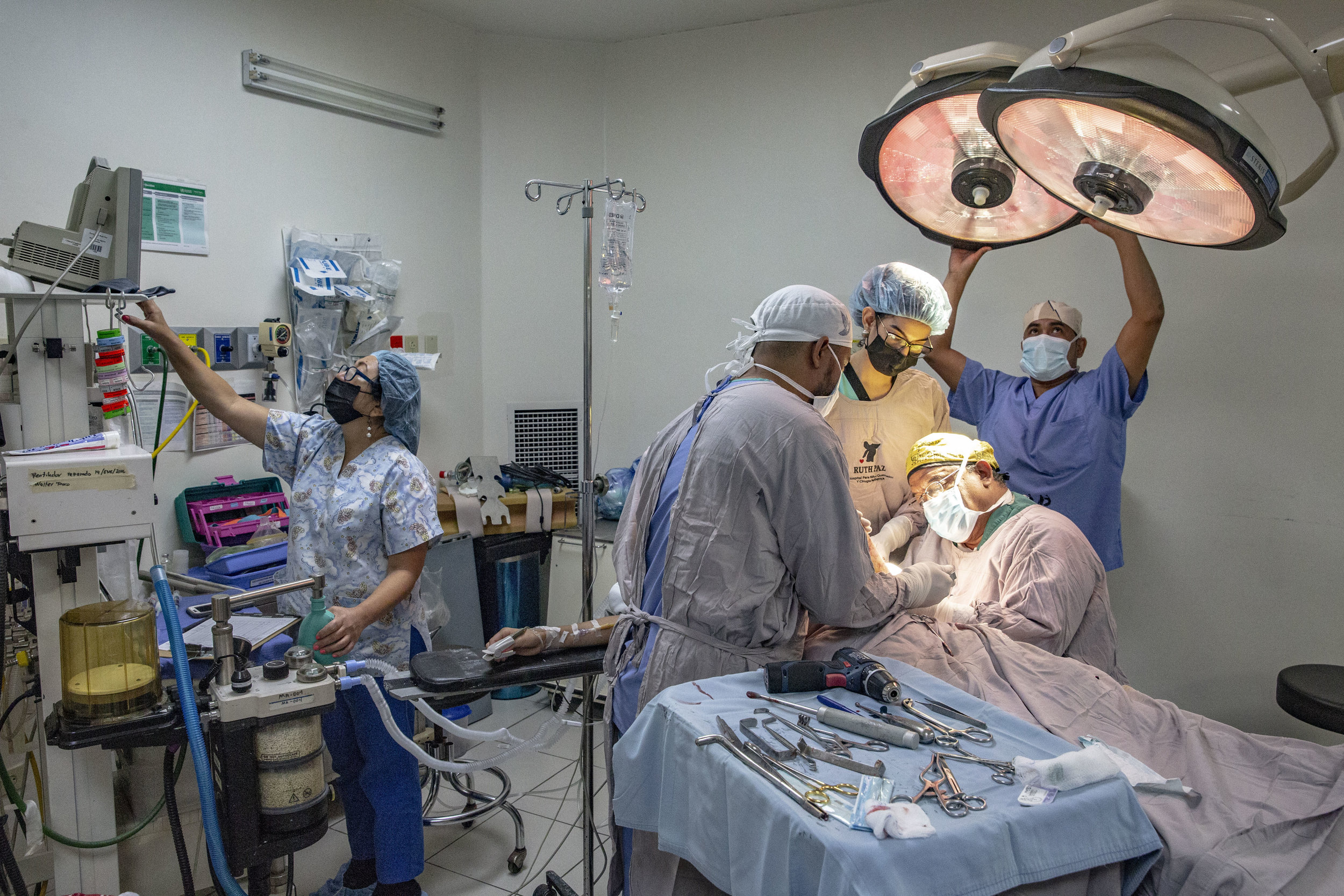
Inside a surgery room during an operation on children at the Ruth Paz hospital in San Pedro Sula, Honduras.
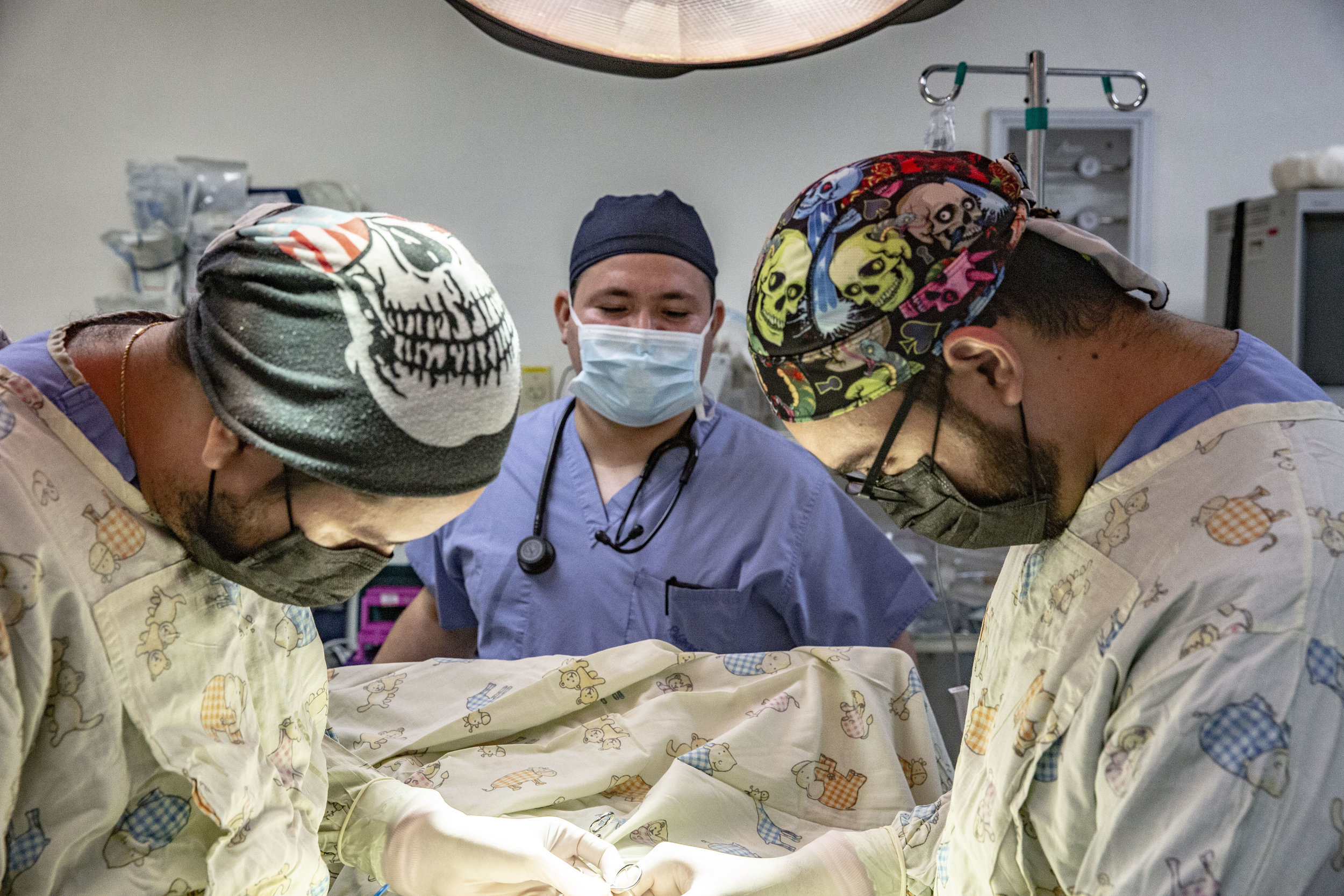
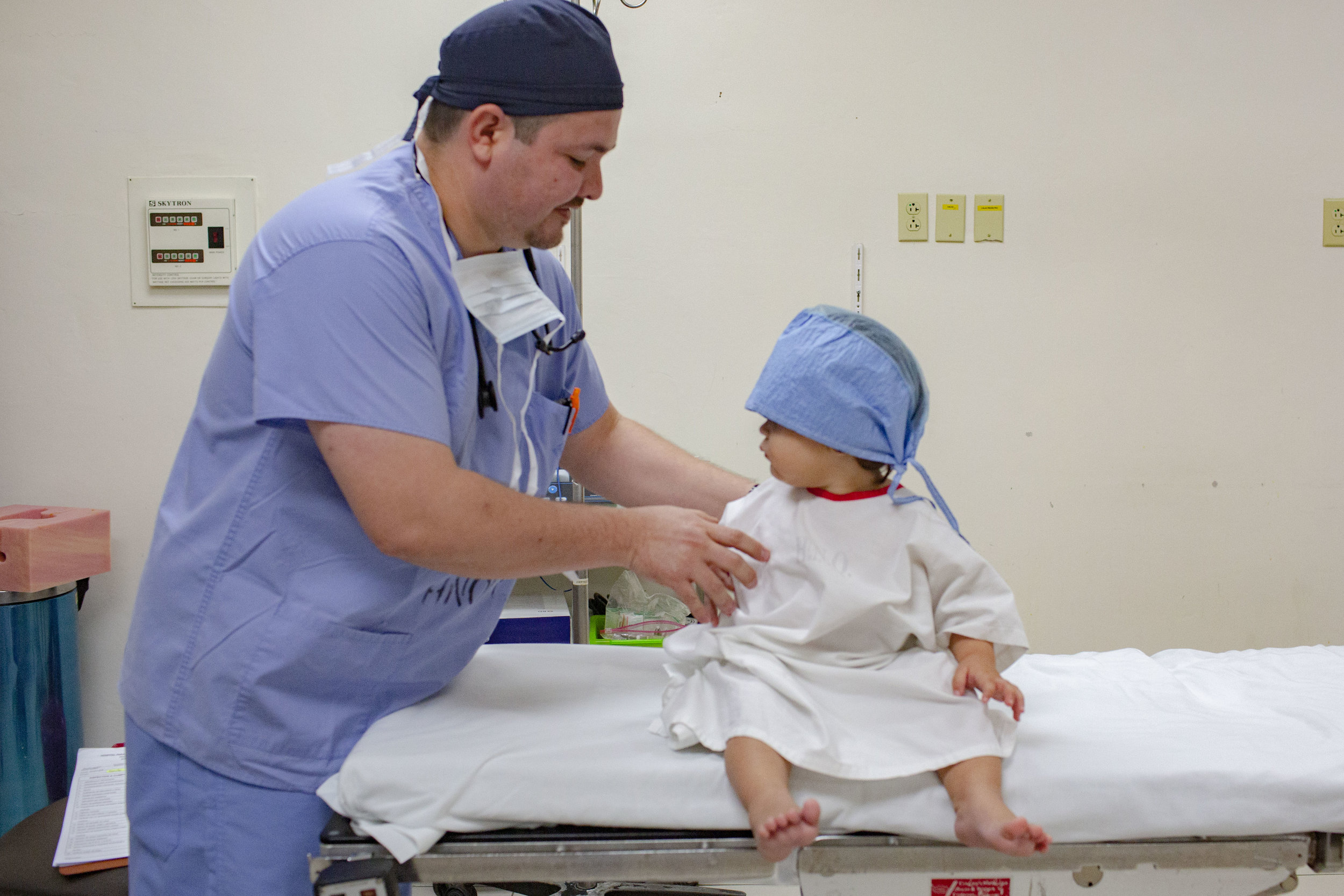
Ricardo Lopez, one year old, awaits to be operated for an anorectal disfuntion at the Ruth Paz hospital in San Pedro Sula, Honduras.
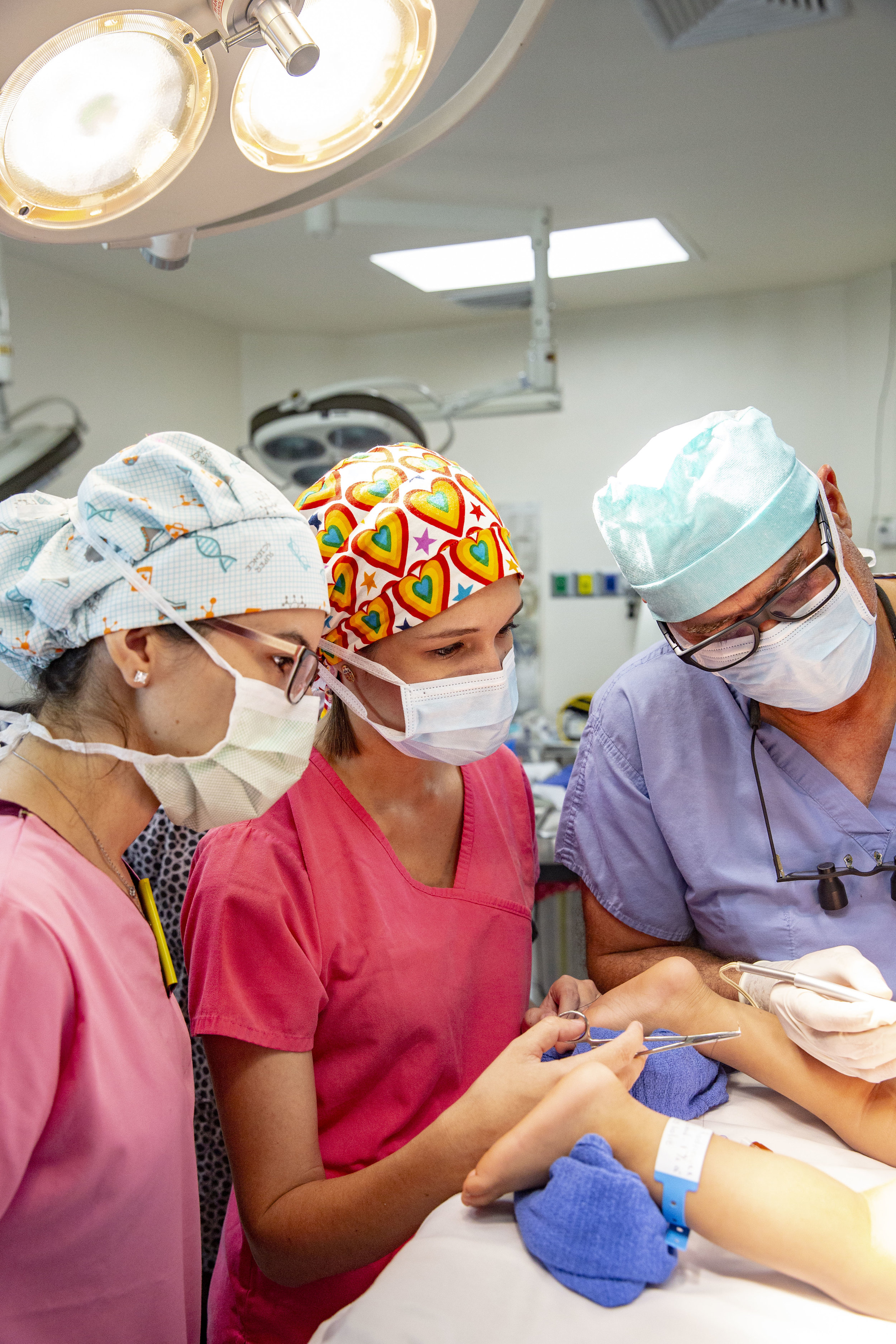
Dr. Craniotti an his assistans during a nine hour long operation on Ricardo Lopez, one year old child both with anorectal disfunctions, at the Ruth Paz hospital in San Pedro Sula.
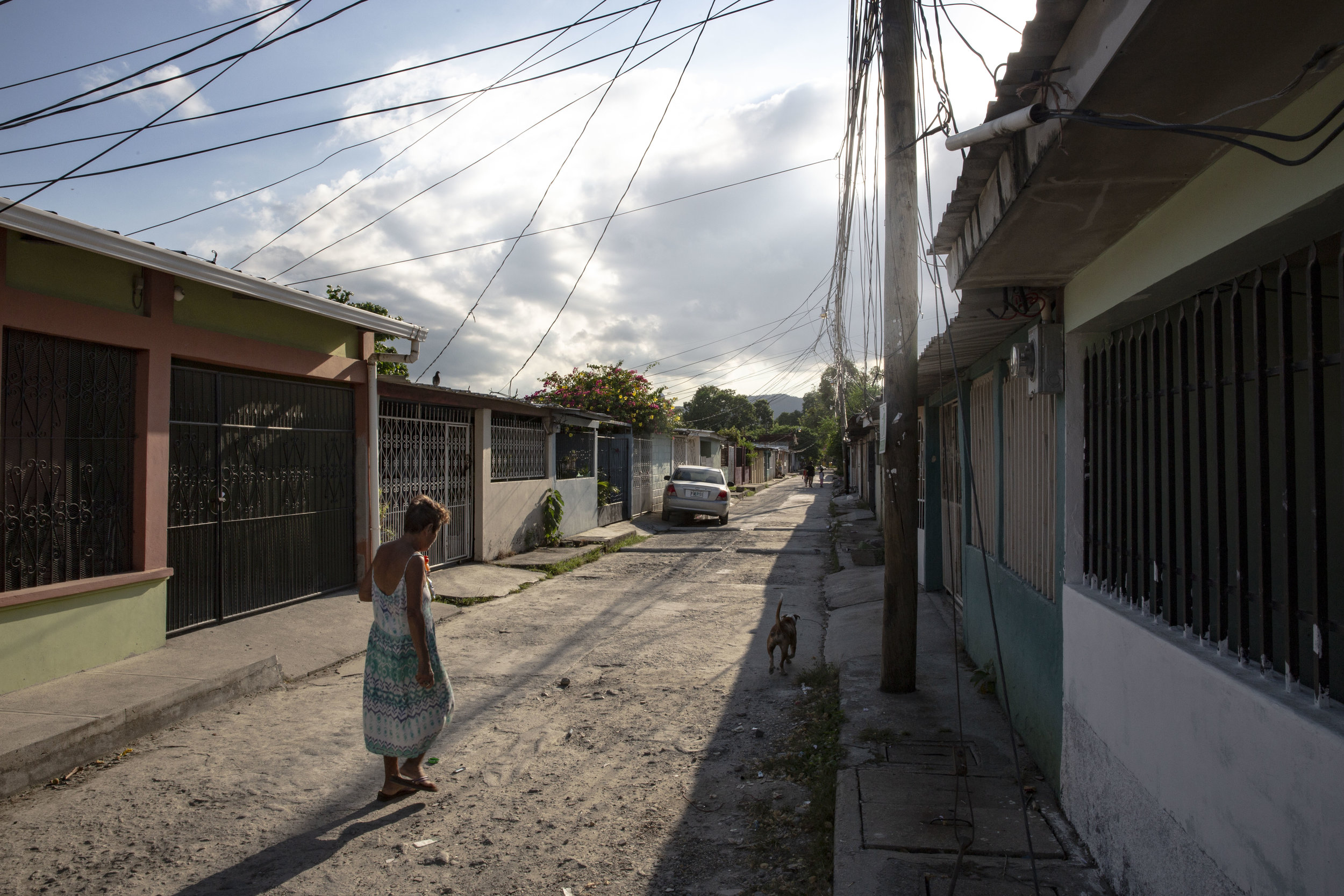
Outside the house of Jose Danilo Ramos , 10, born with anorectal malformation and operated at the Ruth Paz hospital in San Pedro Sula, Honduras.
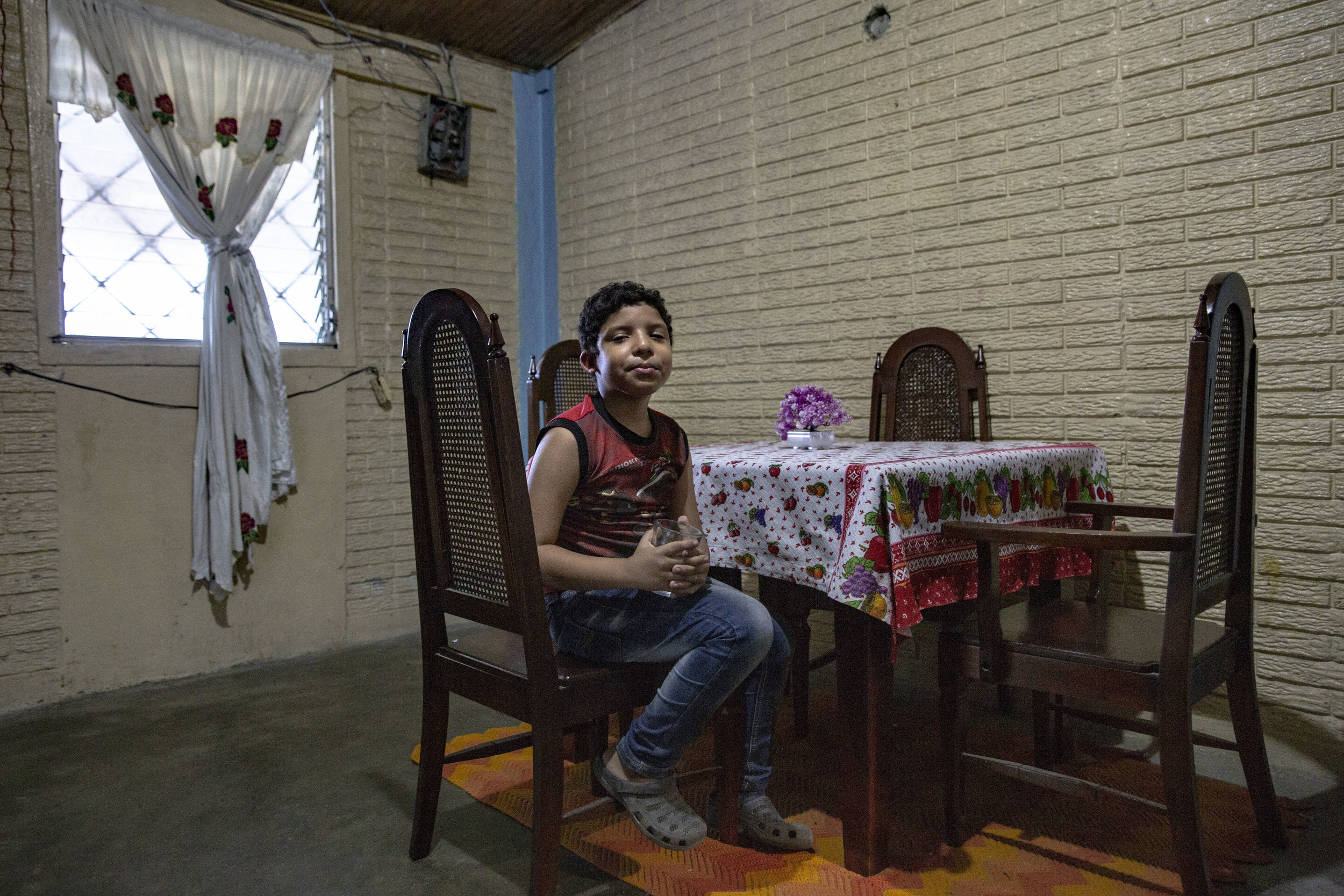
Jose Danilo Ramos is 10 and was born with anorectal malformation. Here in the living of his house where he lives with his family in San Pedro Sula, Honduras.
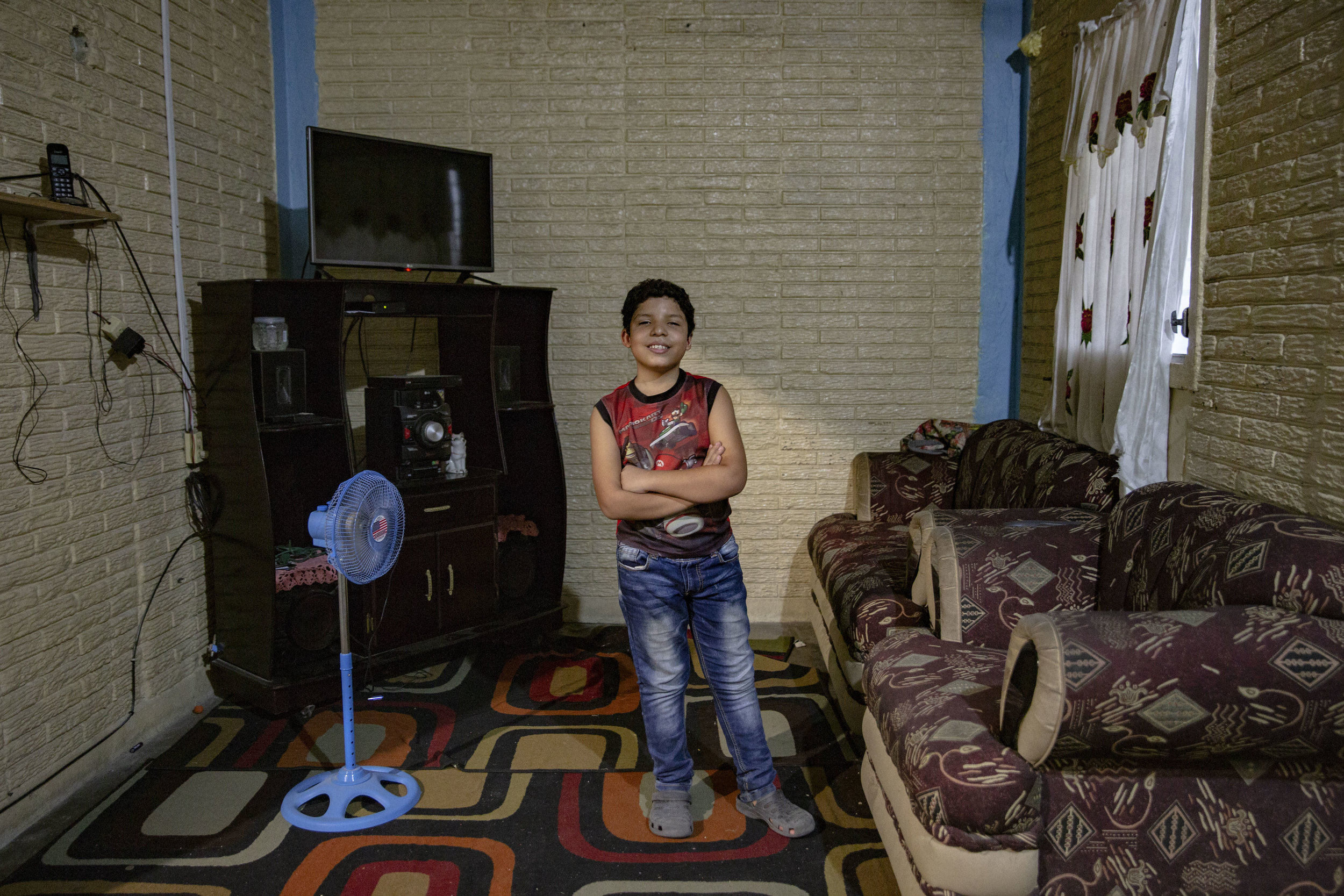
Jose Danilo Ramos is 10 and was born with anorectal malformation. Here in the living of his house where he lives with his family in San Pedro Sula, Honduras.
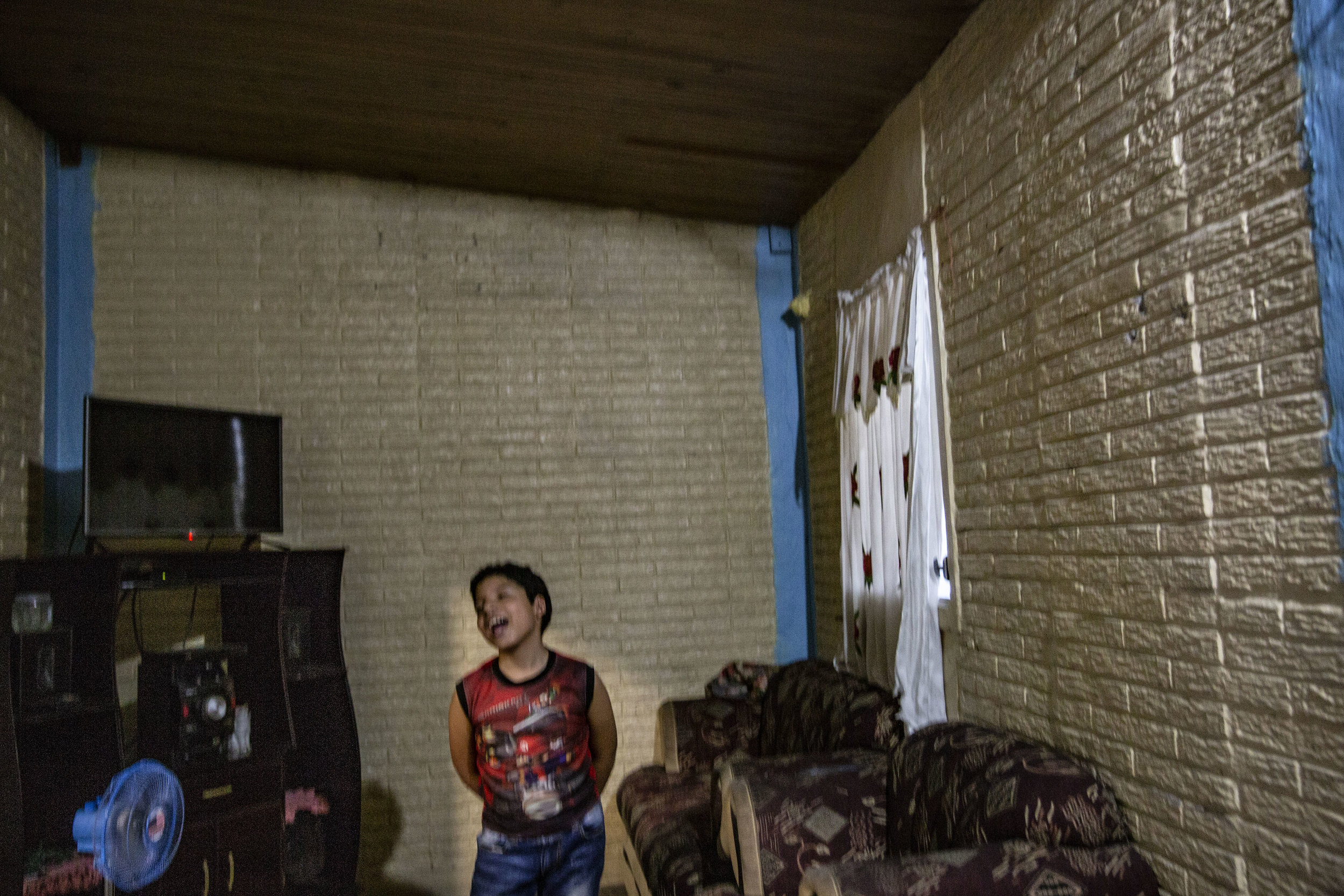
Jose Danilo Ramos is 10 and was born with anorectal malformation. Here in the living of his house where he lives with his family in San Pedro Sula, Honduras.
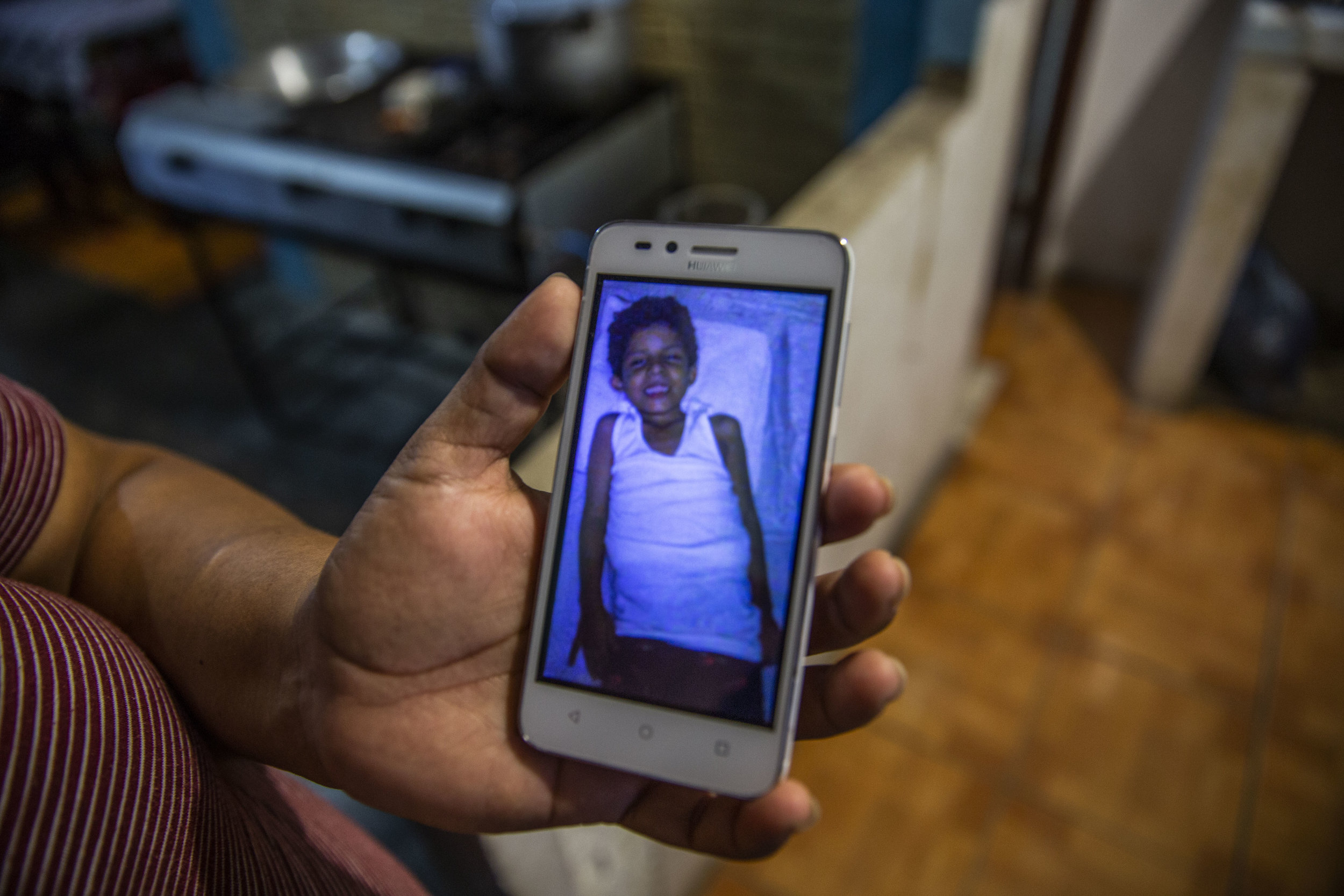
Jose Danilo Ramos is 10 and was born with anorectal malformation. He was first operated at four years old at the public hospital, but it was a disaster. He came out infected with pneumonia and his stomach was so inflamed that he couldn’t eat and was almost starving to death.
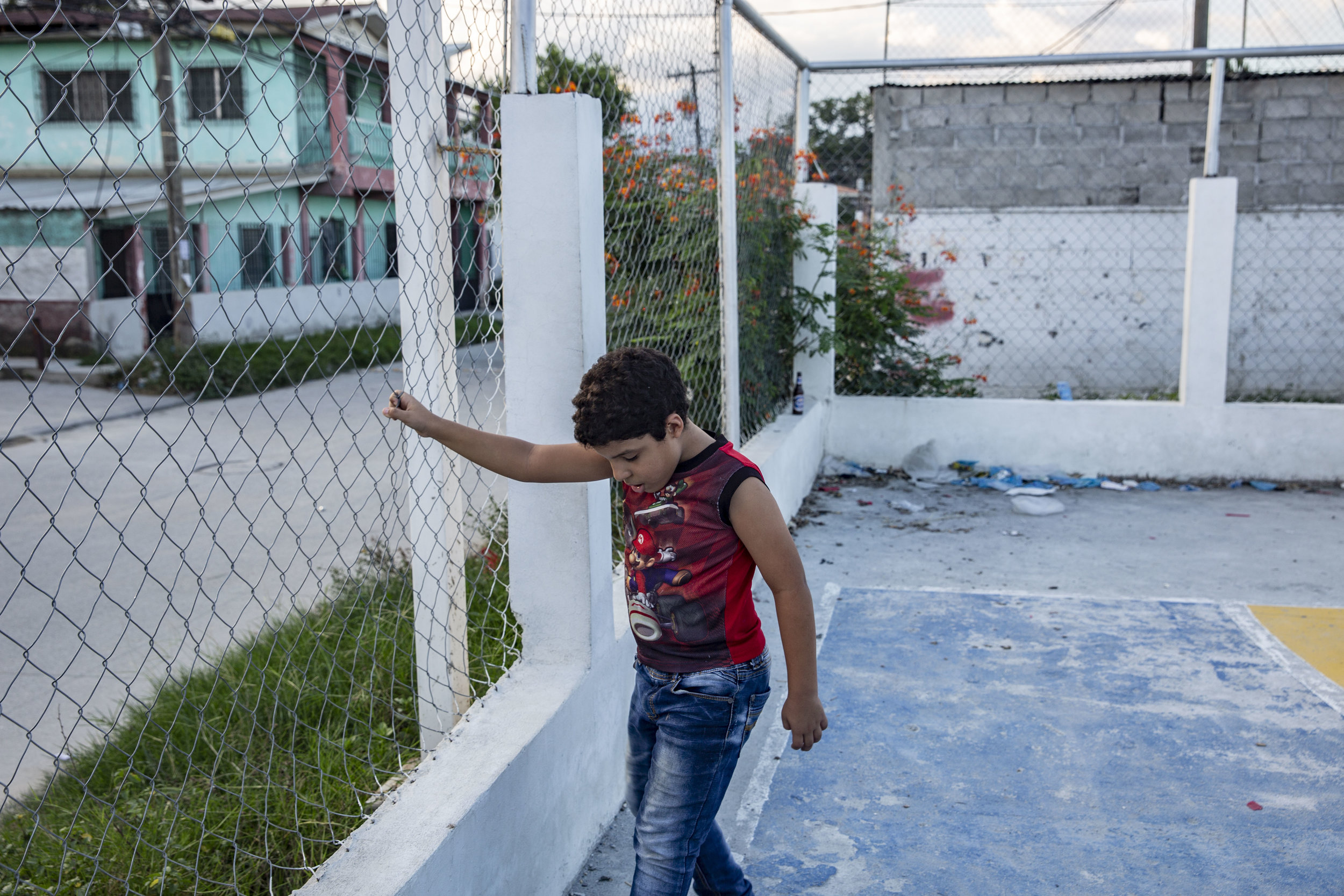
Jose Danilo Ramos laying football next to his house. He is 10 and was born with anorectal malformation. He had multiple operations at the Ruth Paz hospital, in San Pedro Sula, Honduras.
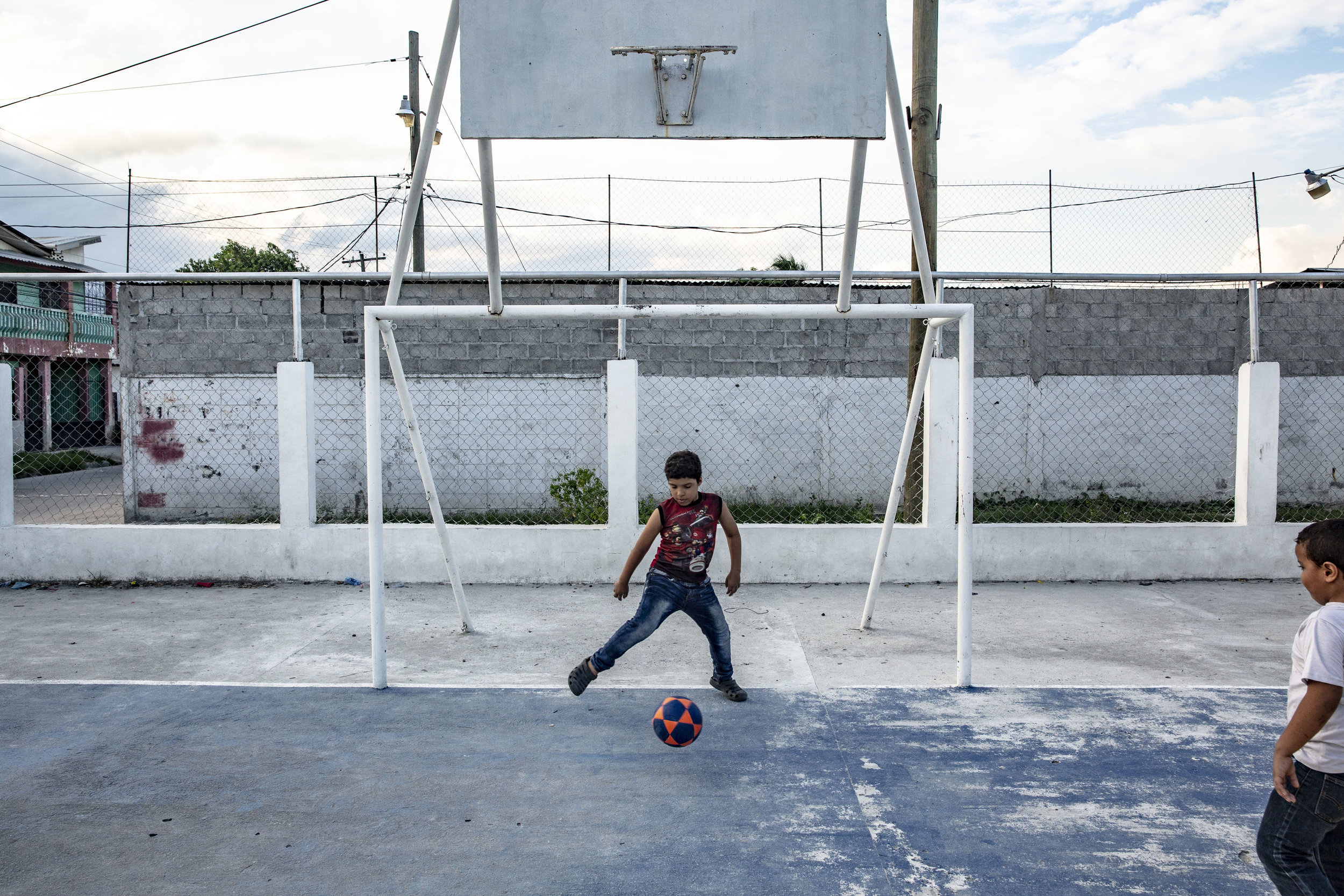
Jose Danilo Ramos laying football next to his house. He is 10 and was born with anorectal malformation. He had multiple operations at the Ruth Paz hospital, in San Pedro Sula, Honduras.
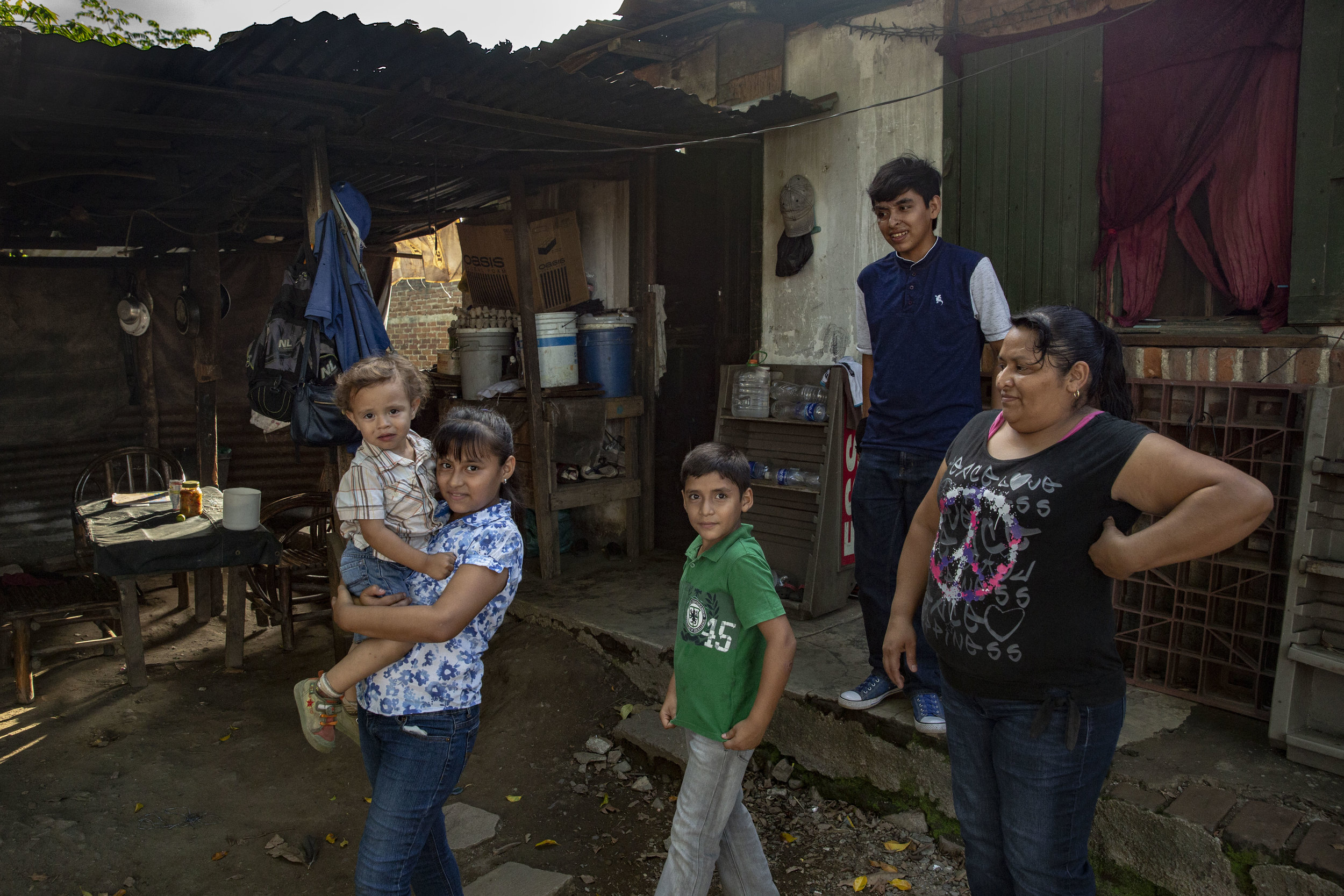
The family of Christian and Alexandra Velasquez, brother and sister who had several surgical operations after an car accident in 2012. They live in San Pedro Sula, Honduras and they recevied extensive help from the Ruth Paz fundation.
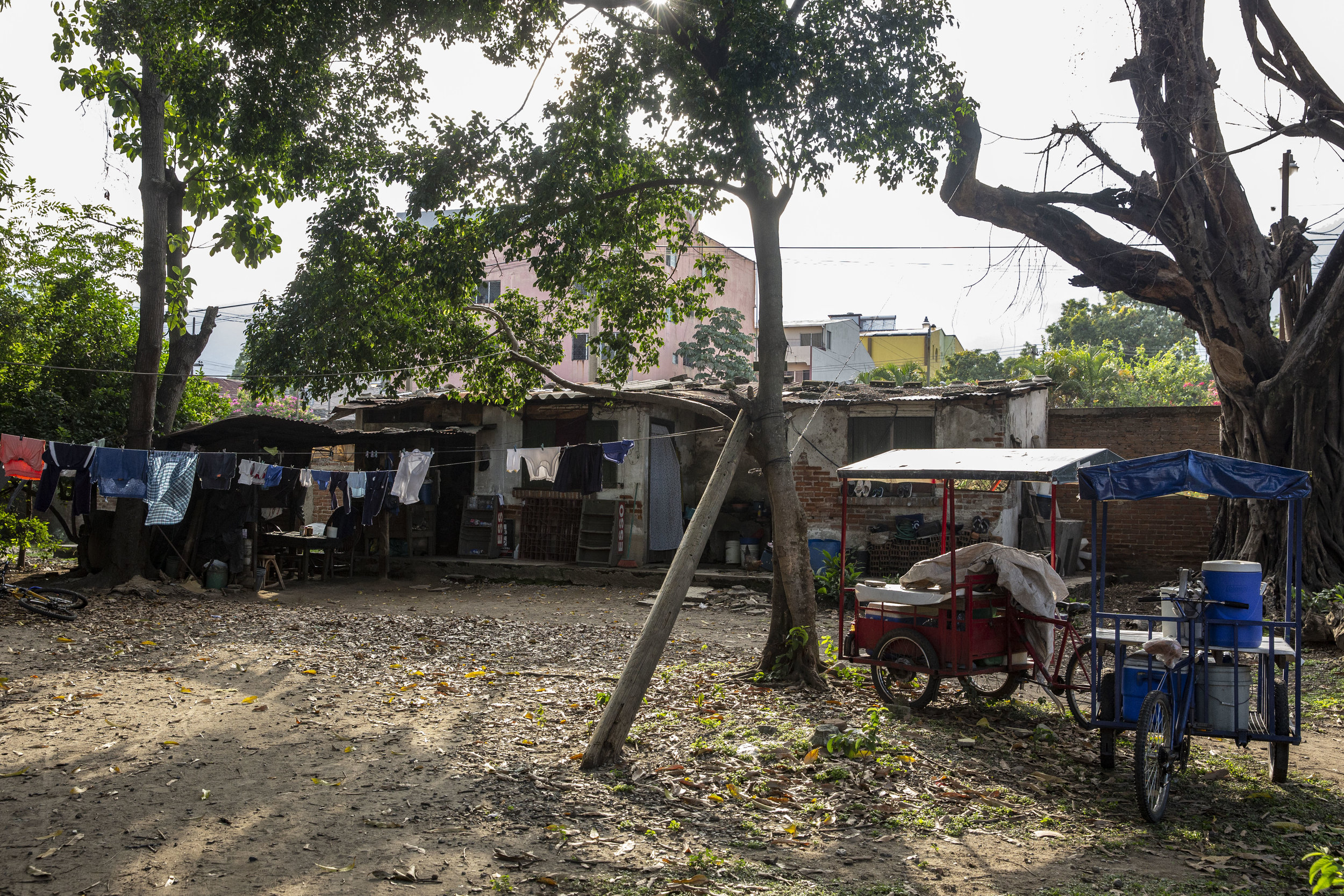
The house of the family of Christian and Alexandra Velasquez, brother and sister who had several surgical operations after an car accident in 2012. They live in San Pedro Sula, Honduras and they recevied extensive help from the Ruth Paz fundation.
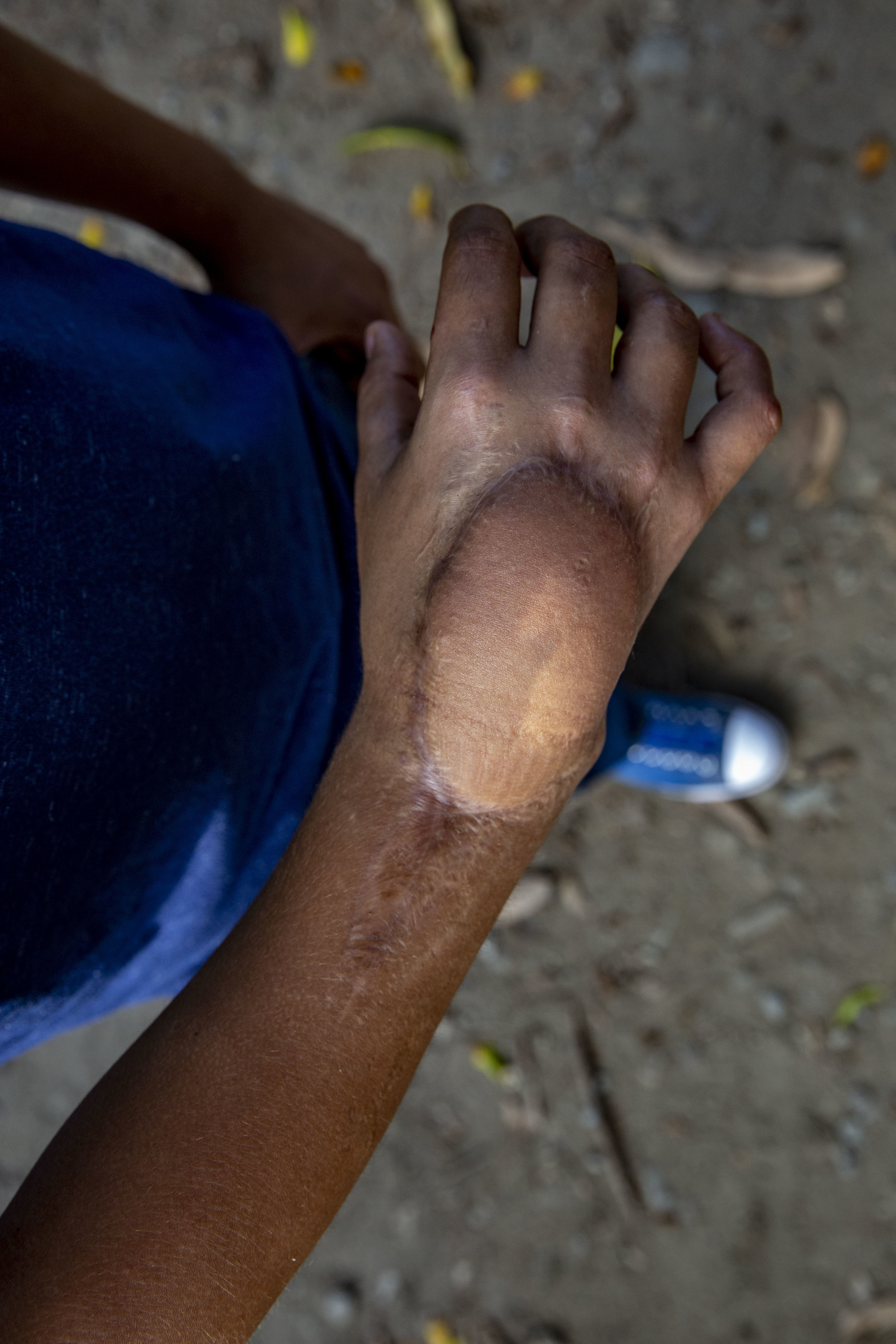
Christian Velasquez, he had several surgical operations after an car accident in 2012. Here in the courtyard of his house in San Pedro Sula, Honduras. He recevied extensive help from the Ruth Paz fundation.
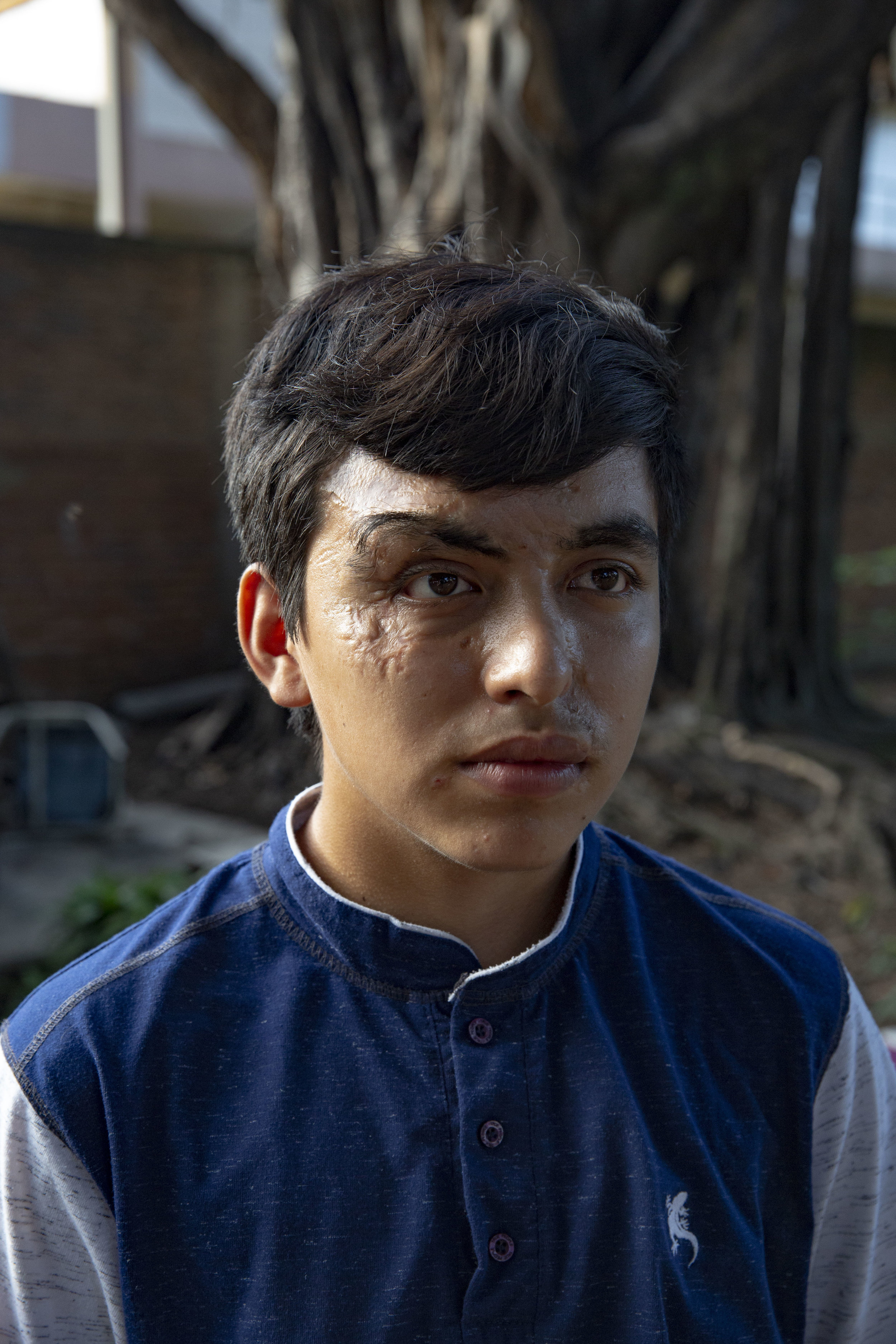
Christian Velasquez, he had several surgical operations after an car accident in 2012. Here in the courtyard of his house in San Pedro Sula, Honduras. He recevied extensive help from the Ruth Paz fundation.
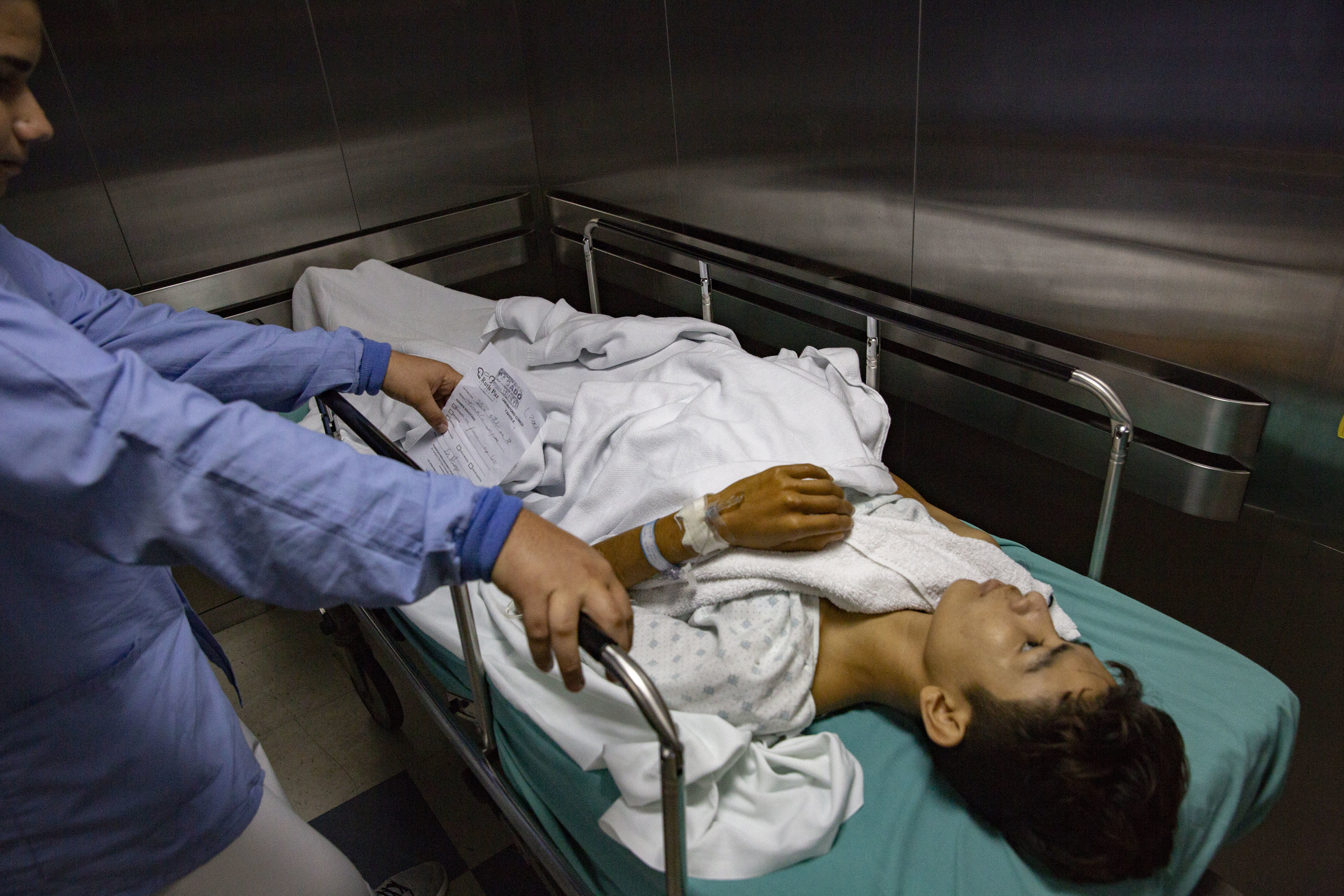
Franklin Lopez, 19, is moved between floors for various exams at the Ruth Paz hospital in San Pedro Sula, Honduras. He broke his femur when he was on a motorbike with his friend. “We were just playing, it was an accident” he says, visibly in pain. After the accident he spent twenty-one days at the public hospital without being treated for his fracture, then his mother took him to the Ruth Paz hospital an he was operated three days after his arrival.
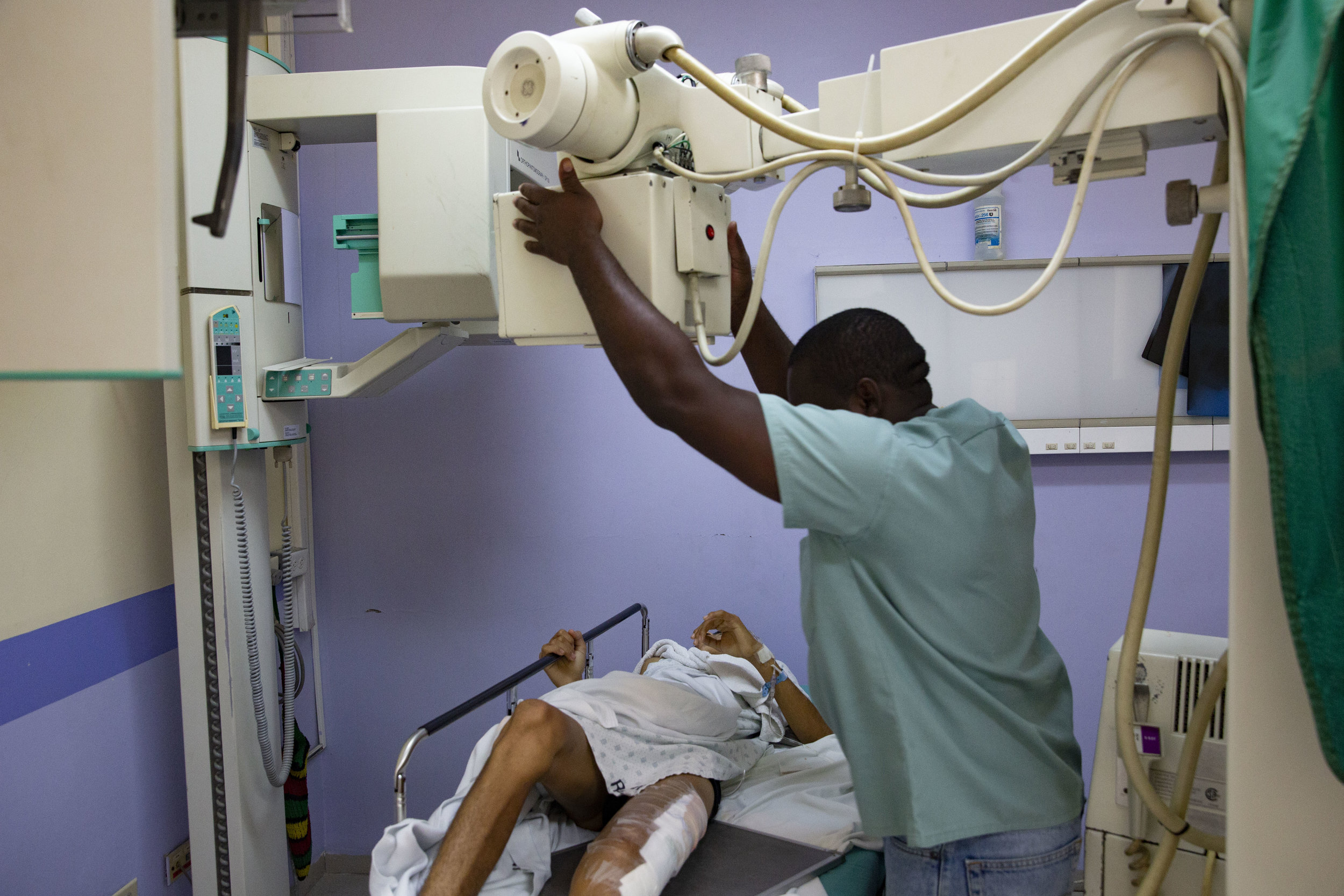
Franklin Lopez, 19, gets an ultrasound exam at Ruth Paz hospital in San Pedro Sula, Honduras. He broke his femur when he was on a motorbike with his friend. “We were just playing, it was an accident” he says, visibly in pain. After the accident he spent twenty-one days at the public hospital without being treated for his fracture, then his mother took him to the Ruth Paz hospital an he was operated three days after his arrival.
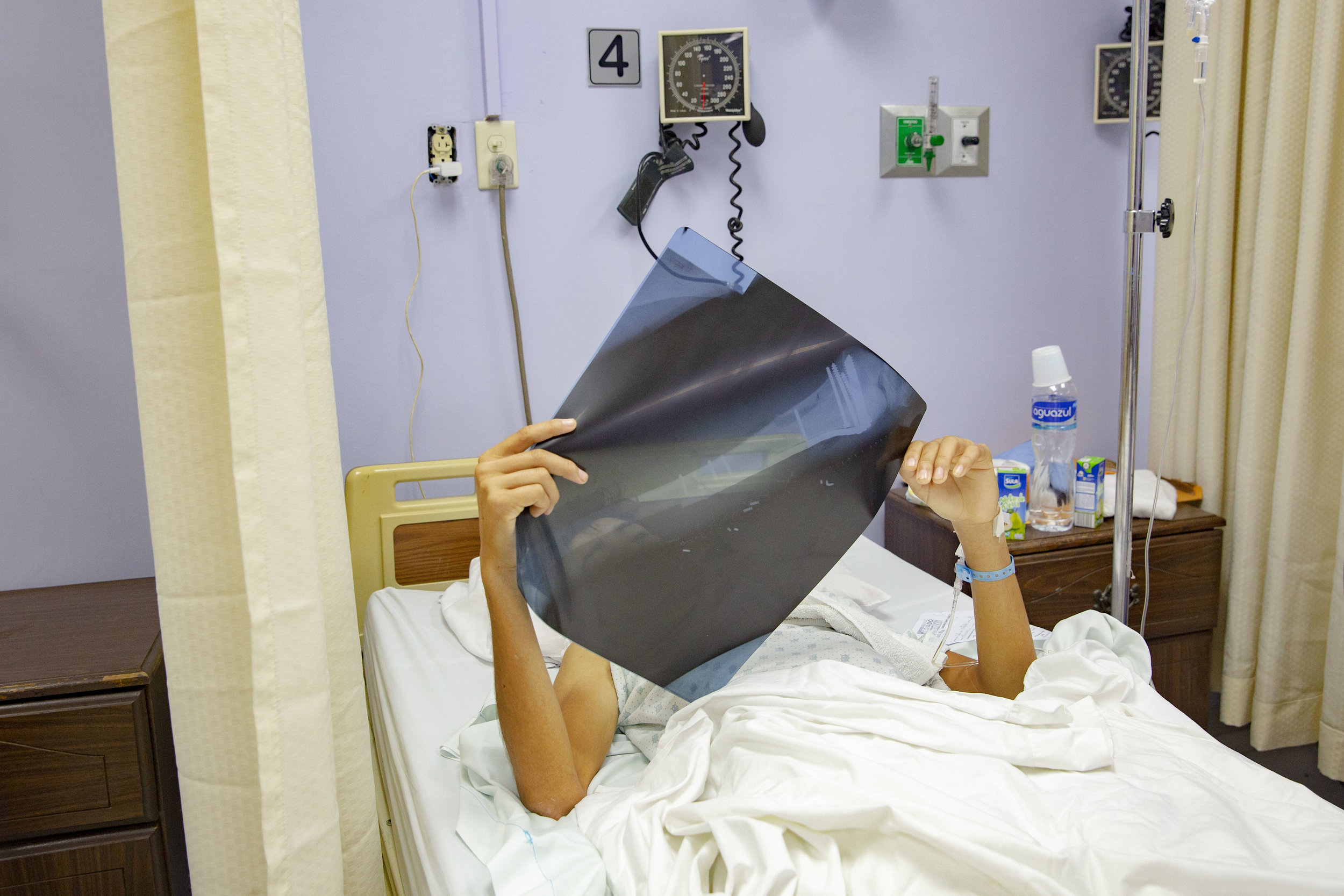
Franklin Lopez, 19, lies in a bed looking at the results of an ultrasound exam at the Ruth Paz hospital in San Pedro Sula, Honduras. He broke his femur when he was on a motorbike with his friend. “We were just playing, it was an accident” he says, visibly in pain. After the accident he spent twenty-one days at the public hospital without being treated for his fracture, then his mother took him to the Ruth Paz hospital an he was operated three days after his arrival.